Now in it’s fifth incarnation the Concours of Elegance returns to its birthplace, Windsor Castle. More about this fabulous event in detail later this month………..but for now a gallery to illustrate a Friday well spent.
John Brooks, September 2016

Now in it’s fifth incarnation the Concours of Elegance returns to its birthplace, Windsor Castle. More about this fabulous event in detail later this month………..but for now a gallery to illustrate a Friday well spent.
John Brooks, September 2016
The Special Correspondent has been enjoying the summer months, especially August, with visits to several of the traditional motoring events in the UK. Here he considers some special cars that were seen at Croxley Green’s Classics On The Green and VSCC Prescott.
A 1936 Series II Super Six Wolseley 25, the largest of the range.
Powered by a 6-cylinder Morris Commercial-derived 3.5-litre o.h.v. engine. Sammy Davis, the 1927 Le Mans winner, took a similar model on the 1937 Monte Carlo Rally and finished a respectable 42nd out of 121 starters, winning the Concours de Confort outright.
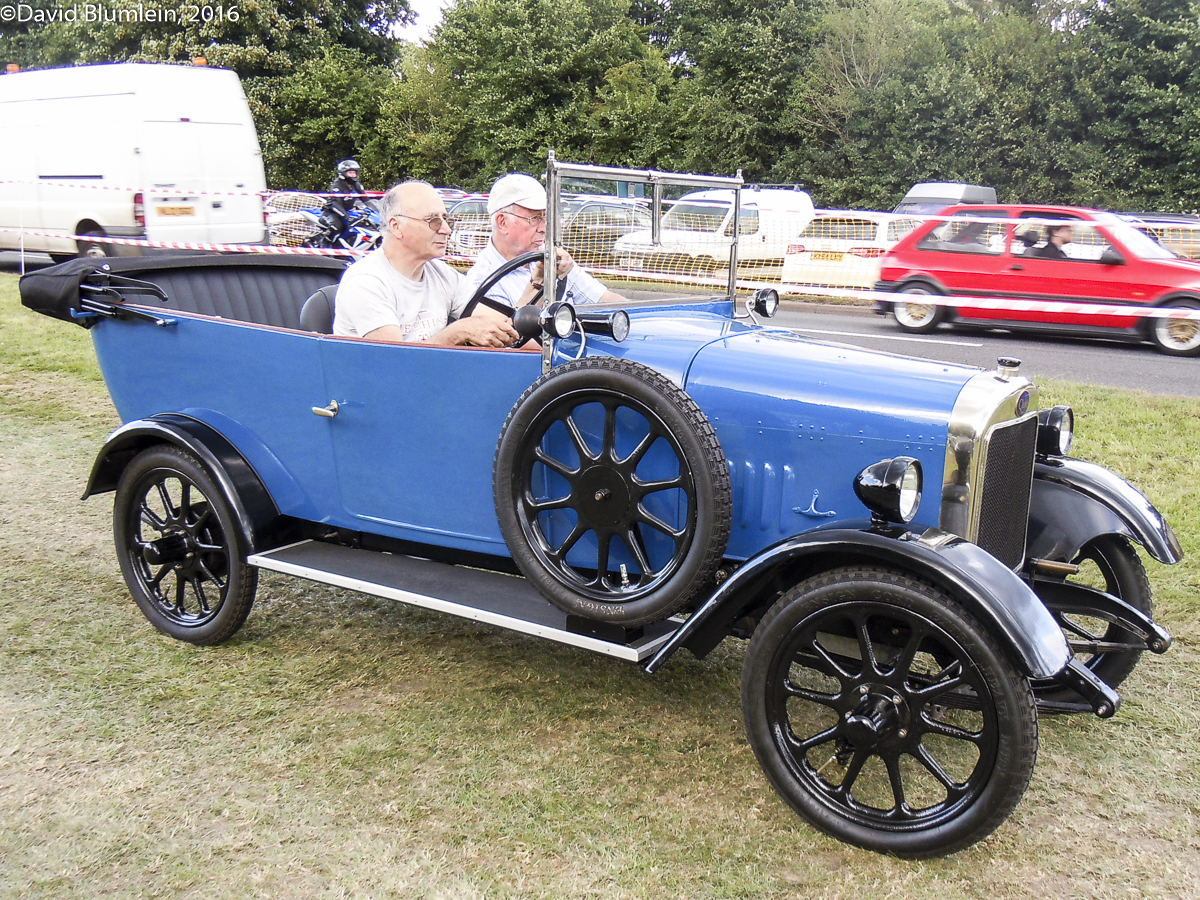
This is a 1924 Cluley 10/20 tourer, a typically vintage light car from Coventry. It has an in-house built 4-cylinder side-valve engine, and this car’s third owner was the well-known Brooklands historian and Editor of Motor Sport Bill Boddy.
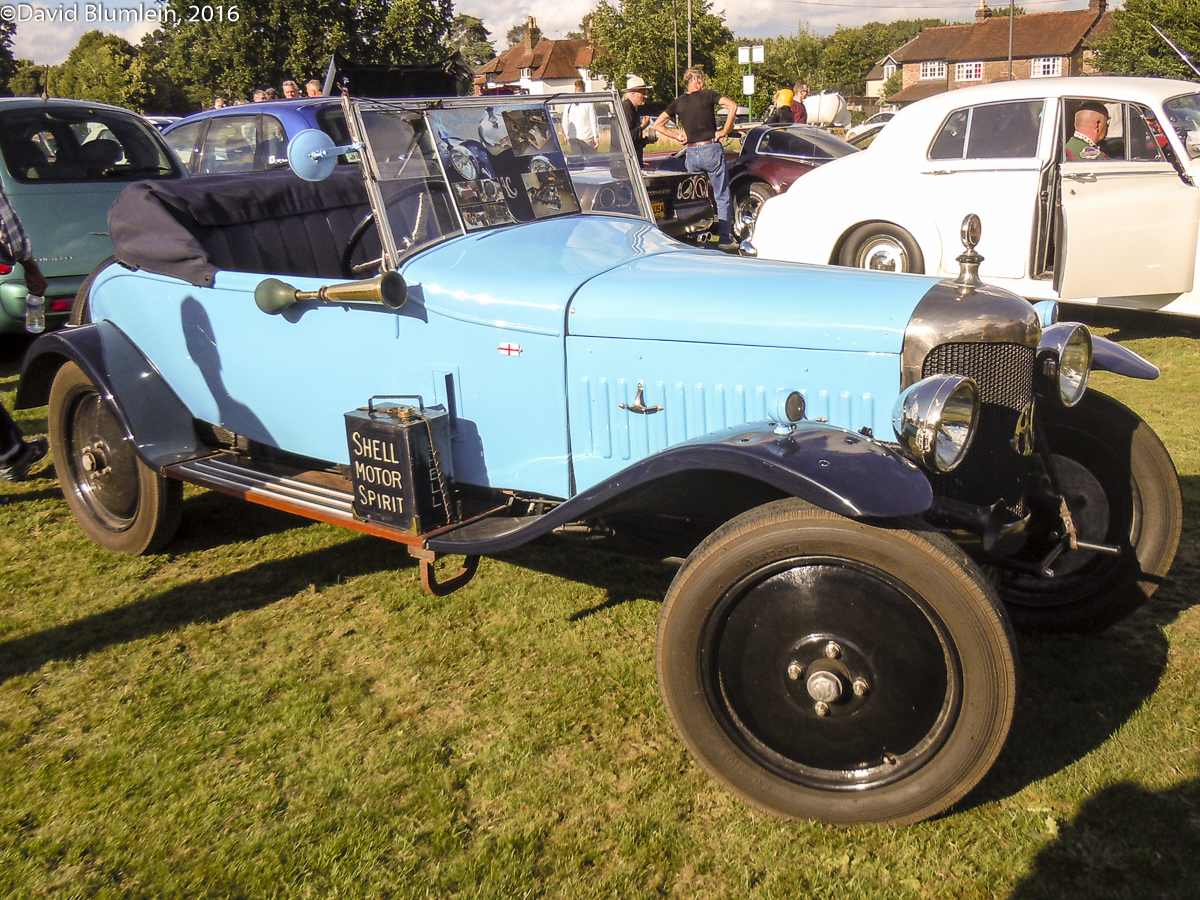
Unmistakable are the A.C.s of the vintage period. This fine example of 1926 is powered by the 1500 c.c. 4-cylinder Anzani engine.
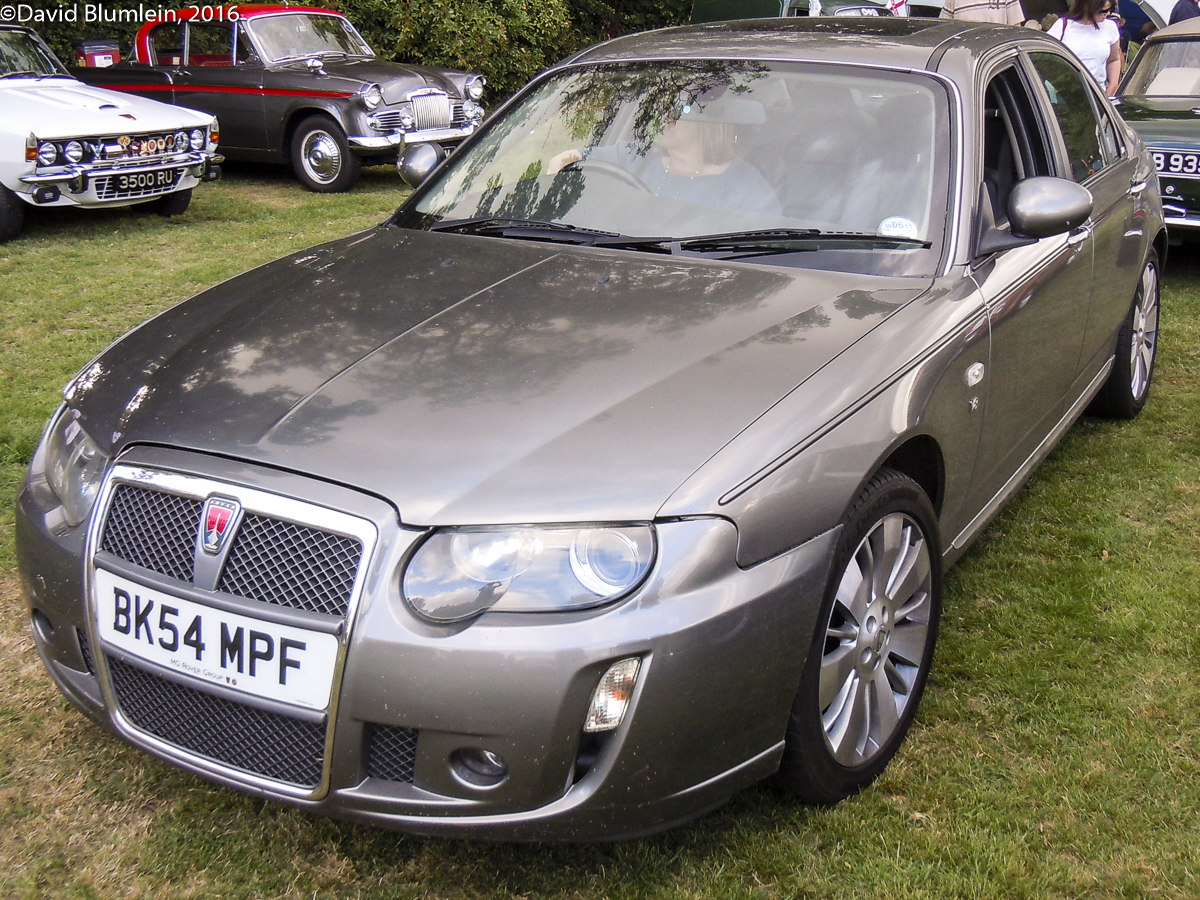
Most of us are all familiar with the Buick-derived V8s in the Rover P5s, P6s and SD1 models but a Rover 75 V8? This is a rare bird indeed!
Rover announced this model at the 2004 Geneva Show and here is its Ford Mustang 4.6-litre V8. As can be seen above, the car was given a much larger front grille to keep this powerful unit cool. Only 166 were made.
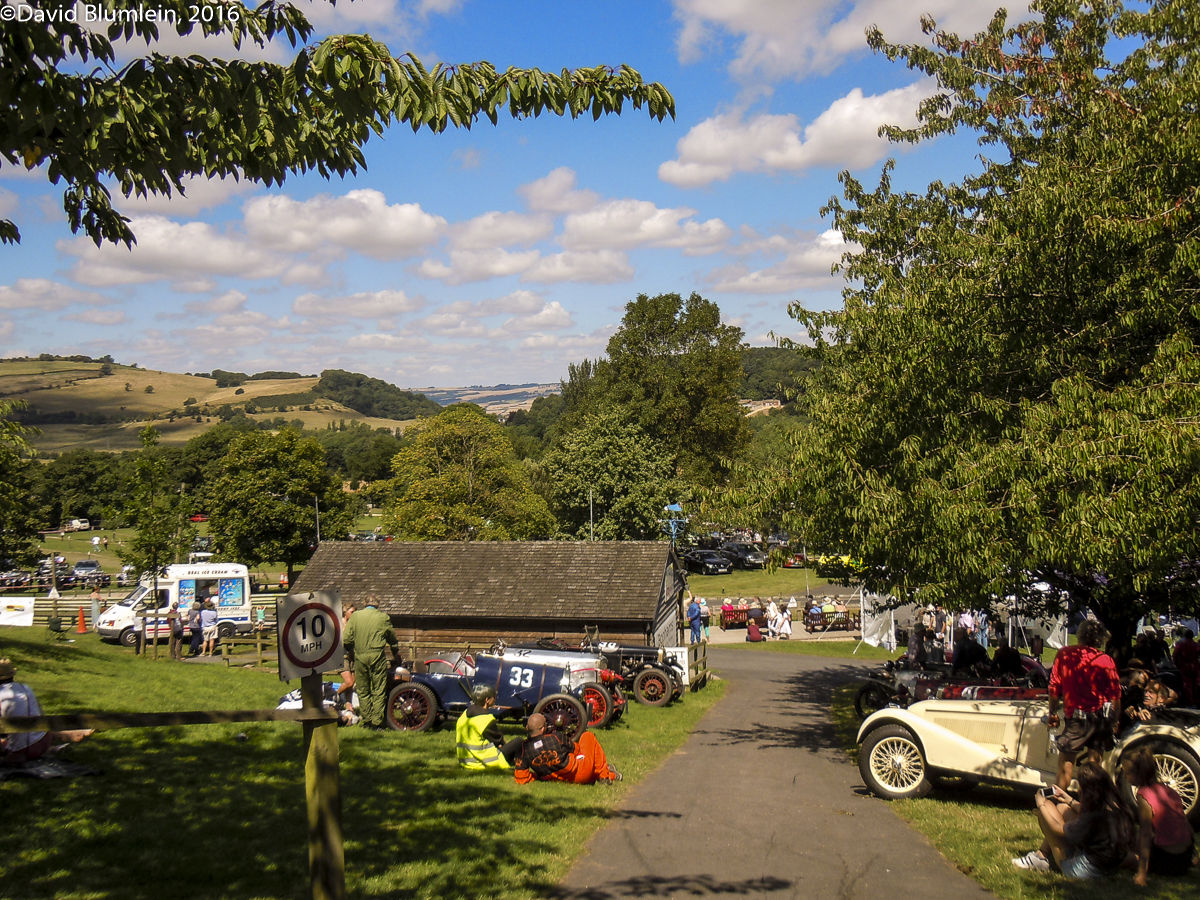
This view, taken from the edge of the Paddock, conveys something of the charm and warmth of Prescott.
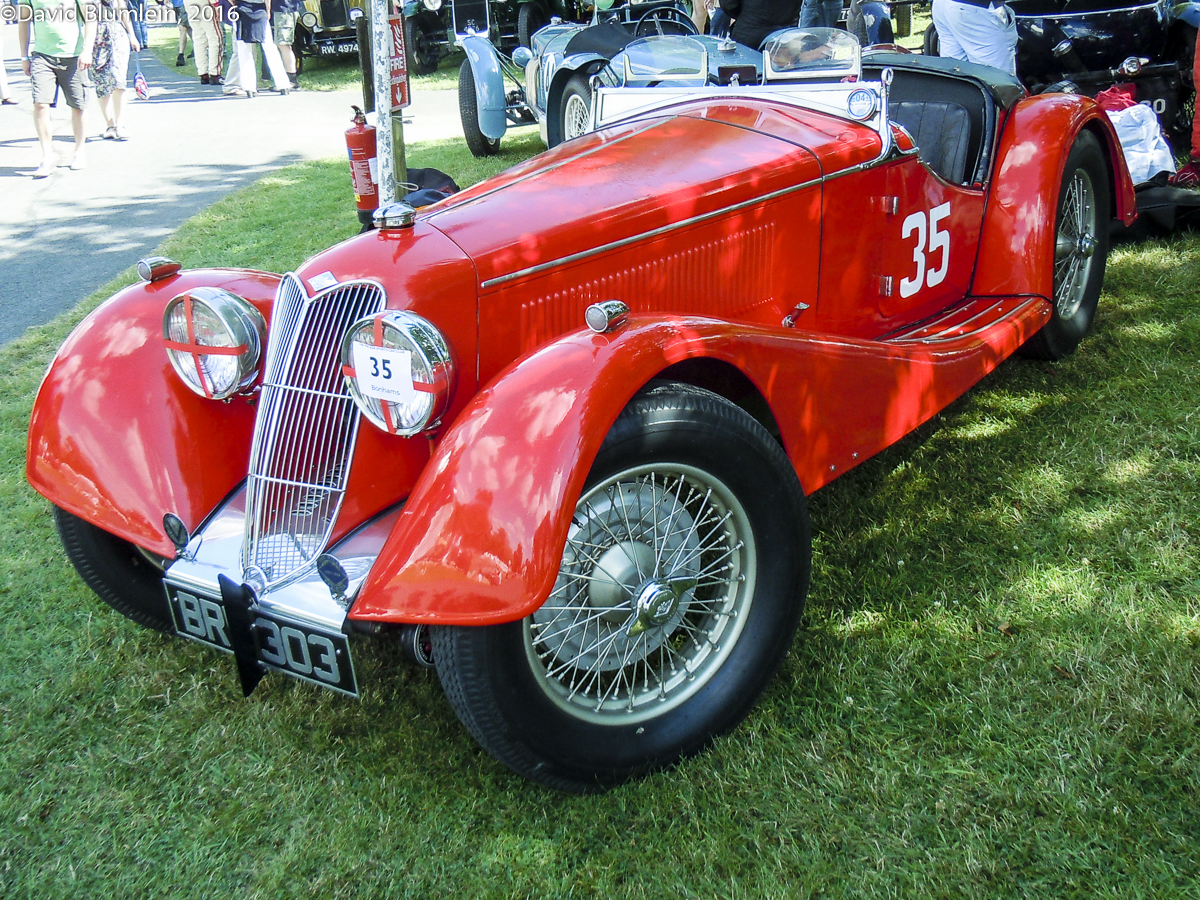
A lovely example of a Riley Sprite. This was their last sports car before the Receivers were called in sadly in February 1938 – the marque was rescued by Lord Nuffield.
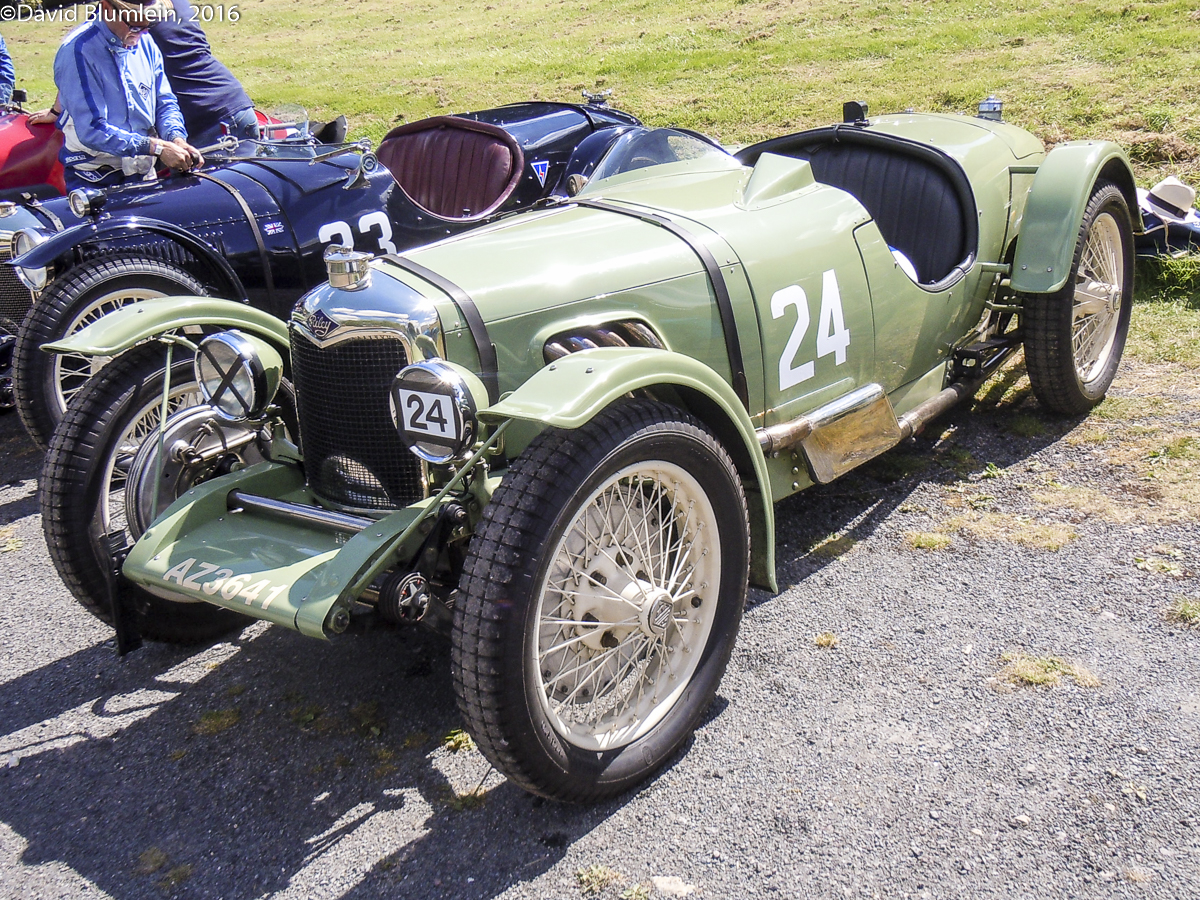
Two superb examples of the famous Riley Brooklands model, Riley’s most successful sporting car.
Conceived originally by Parry Thomas and Reid Railton, it effectively took over the 1100c.c. class from the French and went on to score many international successes, including the 1932 Tourist Trophy.
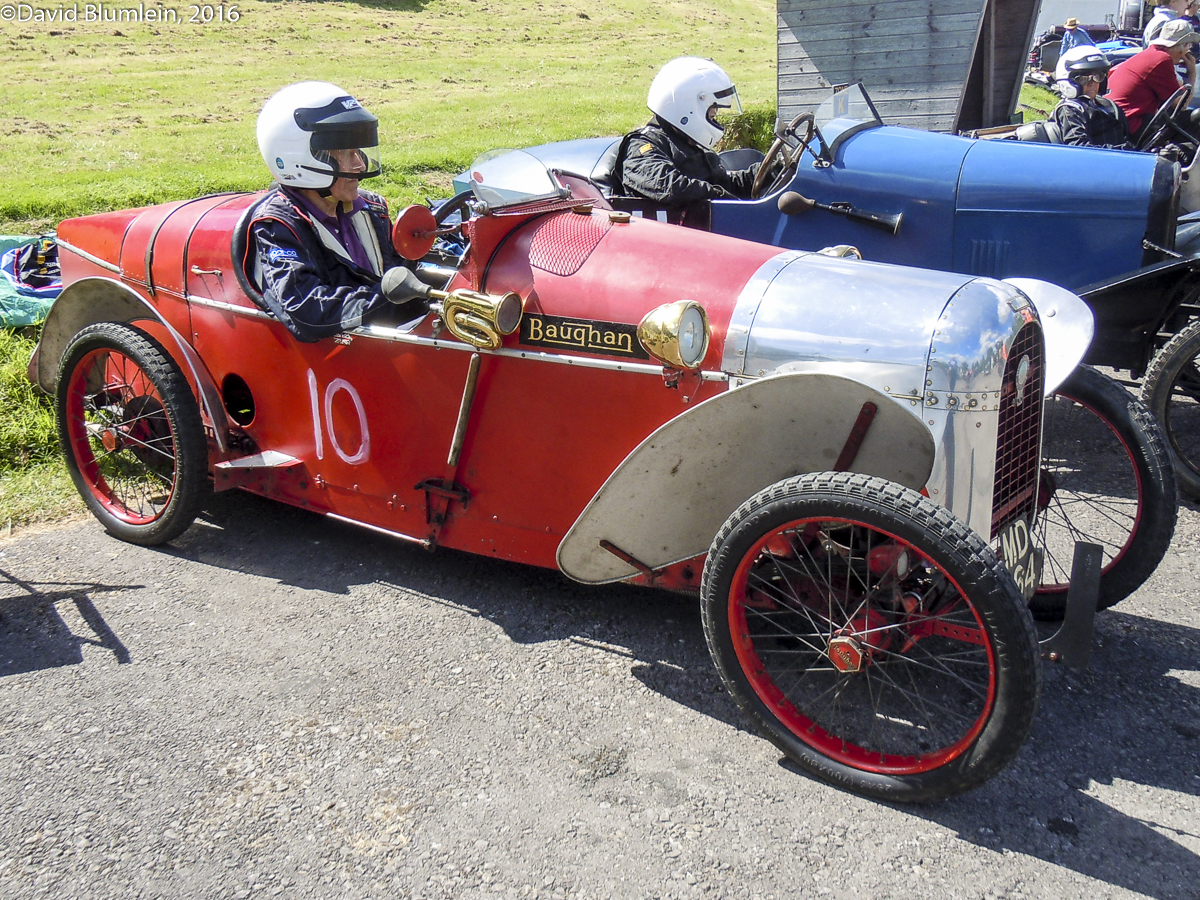
A rare cyclecar, built by Henry Baughan, a talented engineer in Stroud , Gloucestershire. One of only about six manufactured, it uses a 1000c.c. J.A.P. V-twin air-cooled engine.
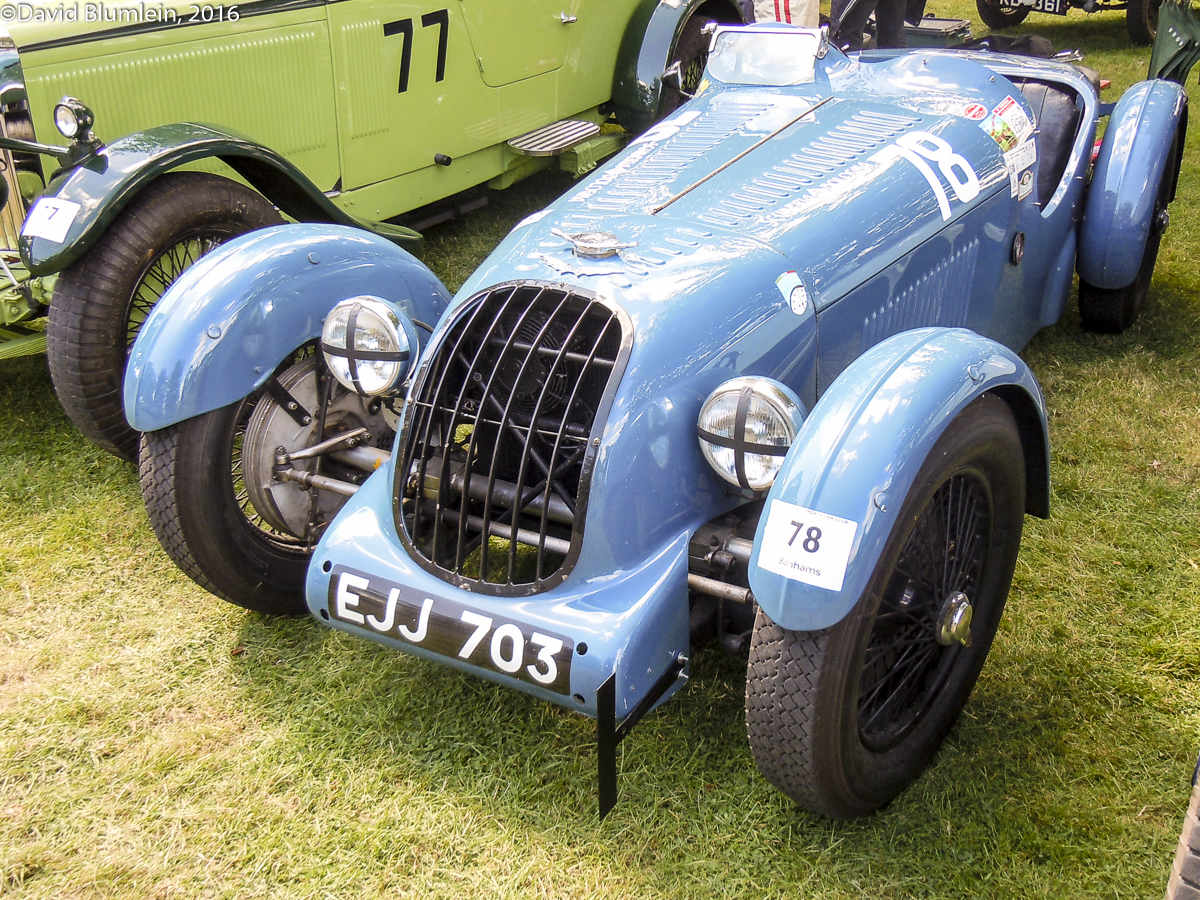
This Alta Sports was returning to Prescott for the first time since 1946 when it was then driven by George Abecassis. Alta cars were the work of Geoffrey Taylor who built a limited number in Surbiton, using his own twin overhead camshaft engines.
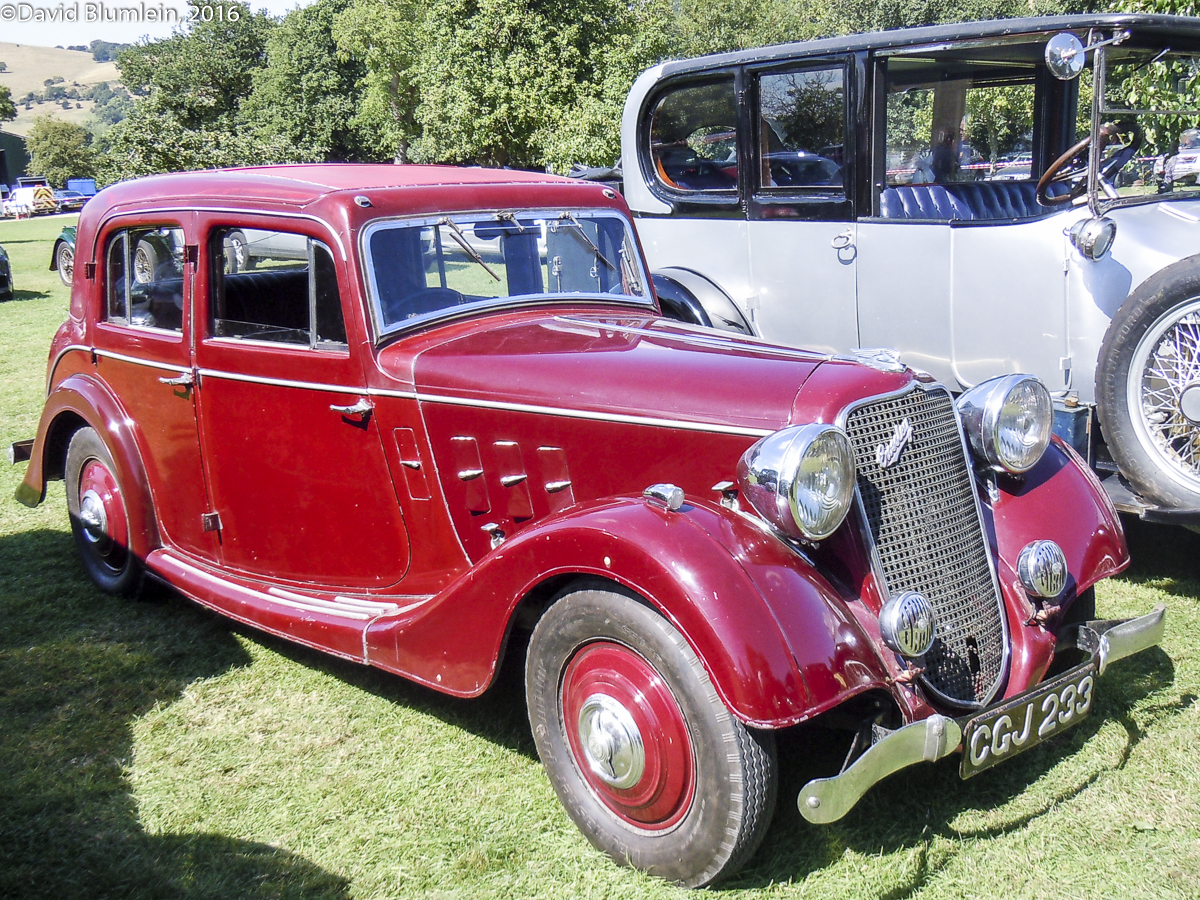
The car park at the VSCC Prescott is invariably as interesting as the Paddock! Here is a Crossley Regis, the last model made by the Gorton, Manchester firm before it ceased car production in 1937. A Coventry-Climax overhead inlet and side exhaust valve engine lurks under that long bonnet driving through an ENV preselector gearbox. The popular stylist of the Thirties, C.F. Beauvais, was responsible for the bodywork.
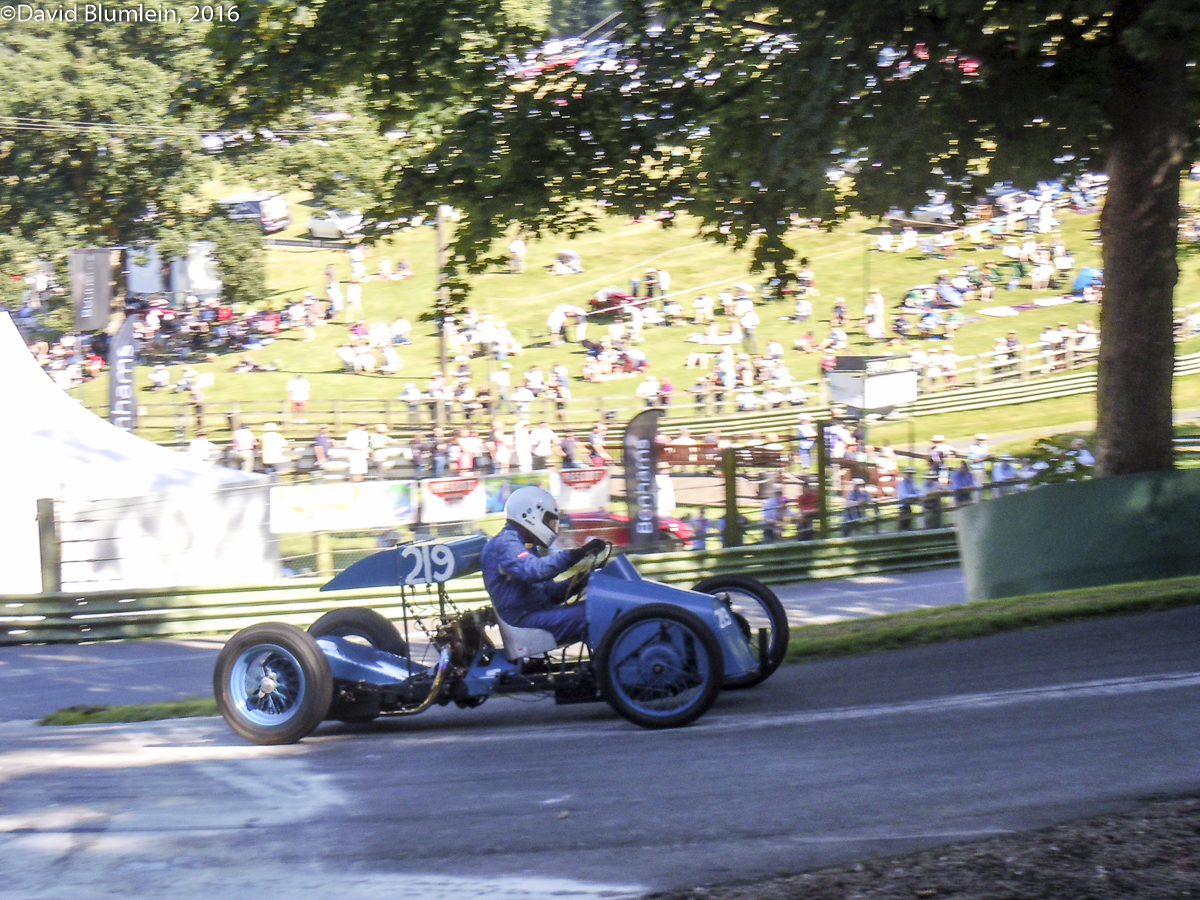
A famous Hill-Climb Special, the Freikaiserwagen, was inspired by Dr Porsche’s pre-war thinking. Powered by a mid-mounted Blackburne V-twin, it brought Joe Fry the Shelsley Walsh outright record in June 1949. Here its iteration is seen in the shadows at Pardon Hairpin.
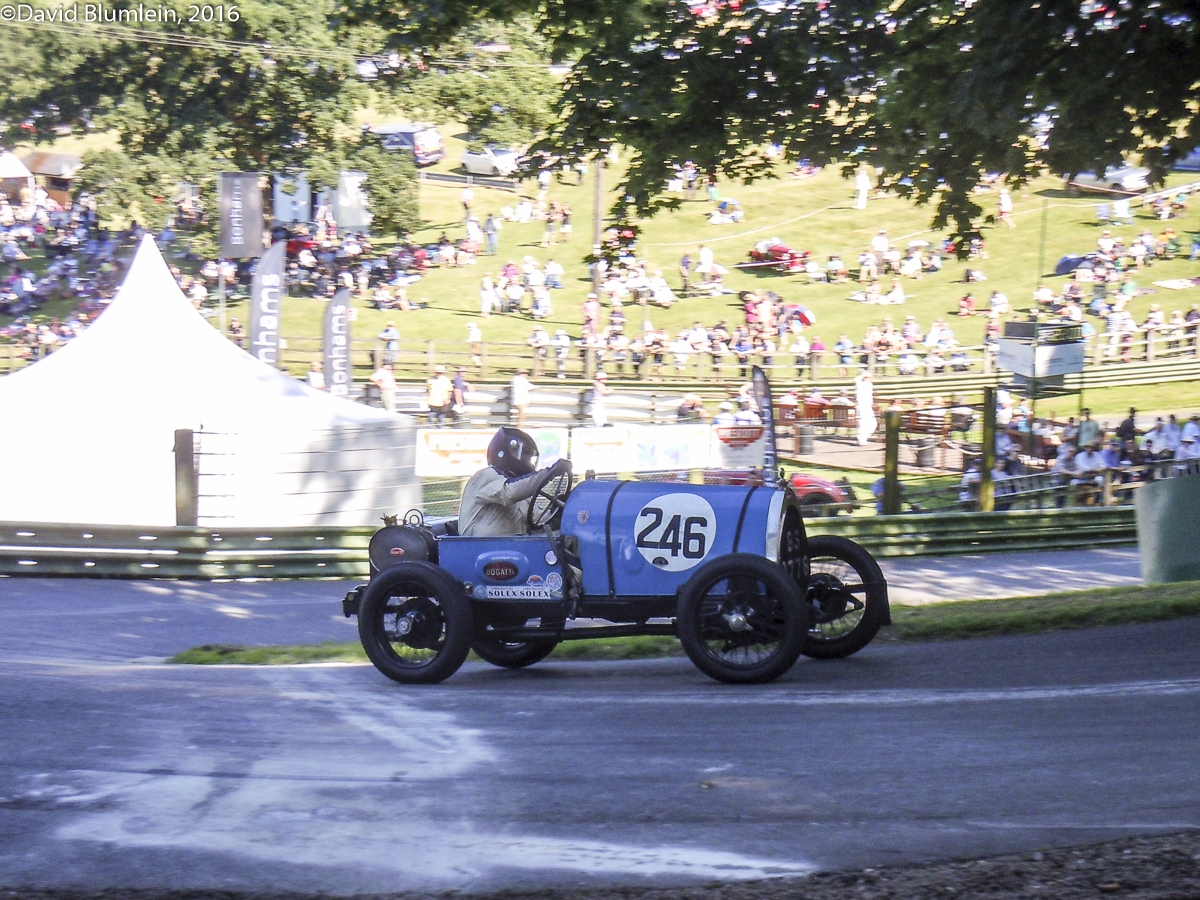
One has to include a Bugatti at Prescott, the home of the Bugatti Owners’ Club! So here is a Brescia going well at Pardon.
TAILPIECE
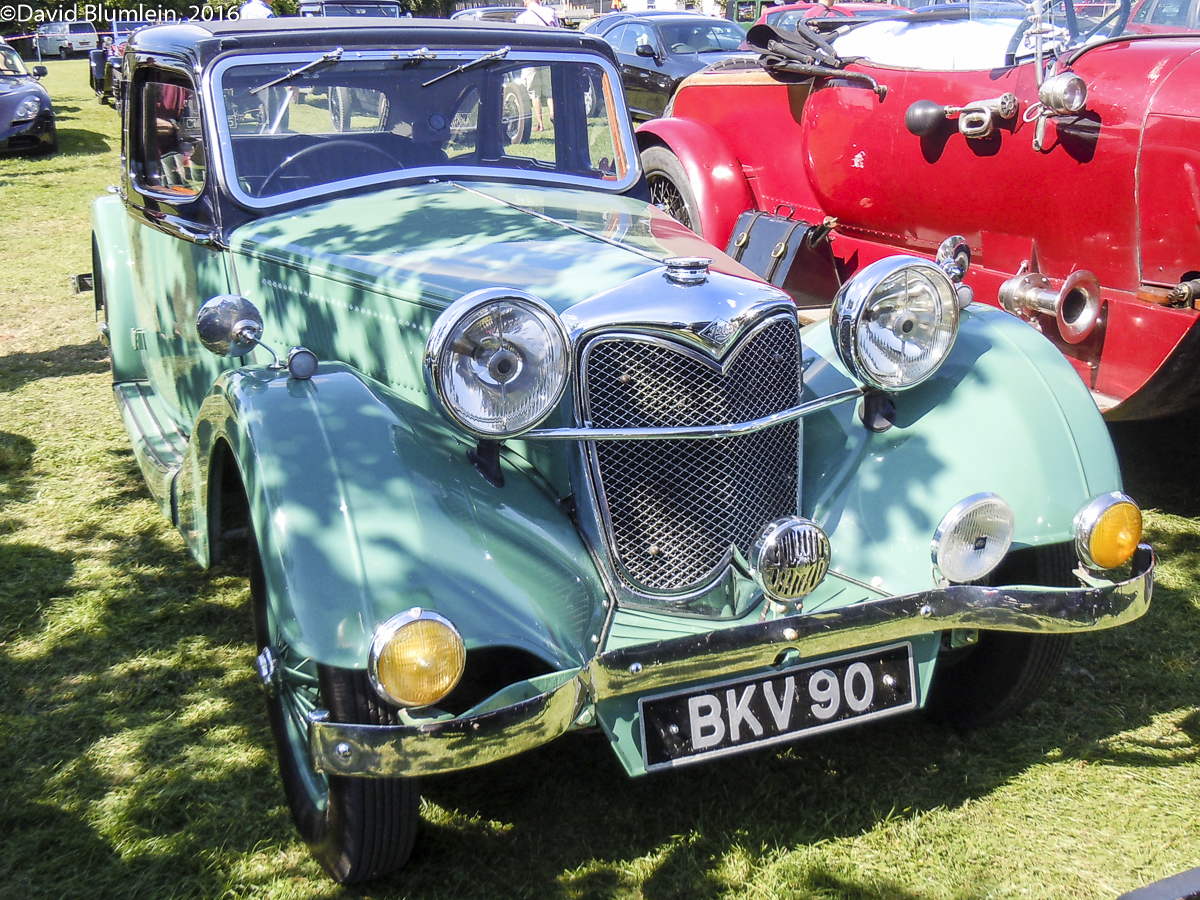
I was privileged to be taken to Prescott in a friend’s superb Riley Kestrel – it has the optional Sprite engine.
David Blumlein, August 2106
Sometime early in 2000 I got a call from the Stéphane Ratel Organisation requesting my attendance at a test session at Valencia, something special was going to be revealed and their regular ace snapper, Peter Fox, was off at a Grand Prix. So I got the chance to hang out of the back of a car and burn through a few rolls of film with the elegant 550 and the mighty Marcos LM600 with Cor Euser at the wheel (who else?) as my subject – happy days.
The new Ferrari 550 Millennio looked the bollocks but turned out to be bollocks in the performance stakes. Stéphane had invested in the new car through GT Racing Developments along with the driver Jean-Denis Délétraz but their efforts came to naught.
Stéphane still regards the money lost on the project as well spent as it encouraged Ferrari and others to get involved in GT1 racing, thus cementing the recovery of the Championship that had nearly foundered in 1998 when AMG Mercedes whitewashed Porsche in an expensive, one-sided contest. The Ferrari 550 Maranello would have to wait a few years for its day in the sun when finally Prodrive got to grips with the project at the request of Frédéric Dor. Victories at Le Mans and Spa 24 plus an impressive list of other successes for the last of the racing front-engined V12 Ferraris all sprang from the unpromising beginning one day in Spain.
John Brooks, August 2016
One of the many attractions of the Rolex 24 Hours around the turn of the century was eclectic nature of the entry list, you never could tell what would show up next. So here high up on NASCAR Four in 1999 we have the Intersport Lola leading the Spirit of Daytona Mitsubishi Eclipse, while a Ferrari 348 tours along presumably heading for the pit lane.
The Ferrari was the slowest of the trio, nearly 8 seconds off the local Japanese GT with the prototype a further 20 seconds up the road. Another difference to most other races was the driver line up, six for the 348, 3 in the Eclipse and four in the Lola. Only the Eclipse finished the race, 253 laps down on the winner, good enough for 39th place after posting 455 laps
John Brooks, August 2016
I spend a lot of my working days looking at motor-sport photographs, both mine and those by others. To put it mildly there is a fair amount of dull dross around, and that’s just my archive. There are currently several “ace practitioners”, as they might witlessly describe themselves, who are nothing of the sort and whose output is embarrassing. The other side of the coin is to find an image that captures both the moment and the spirit of an event. I encountered the above while researching pictures for a book and it immediately grabbed my attention. It could only be Spa and the 24 Hours back in 2009……………of course it is the work of the great French agency DPPI who have been at the top rank of motor-sport photography for decades, the individual credit goes to Gregory Lenormand. So Monsieur Lenormand, Chapeau! Bravo! Respect!
John Brooks, August 2016
A few weeks back Brooklands was the source for subject matter in the latest chapter in our ever-popular ‘Rare and Interesting’ series. The Special Correspondent dug out a few gems for our appreciation.
This Lotus Mark V1 M.G. gave Team Lotus their first race win when Peter Gammon won the up to 1500 c.c. Heat of the British Empire Trophy at Oulton Park on 10th April 1954.
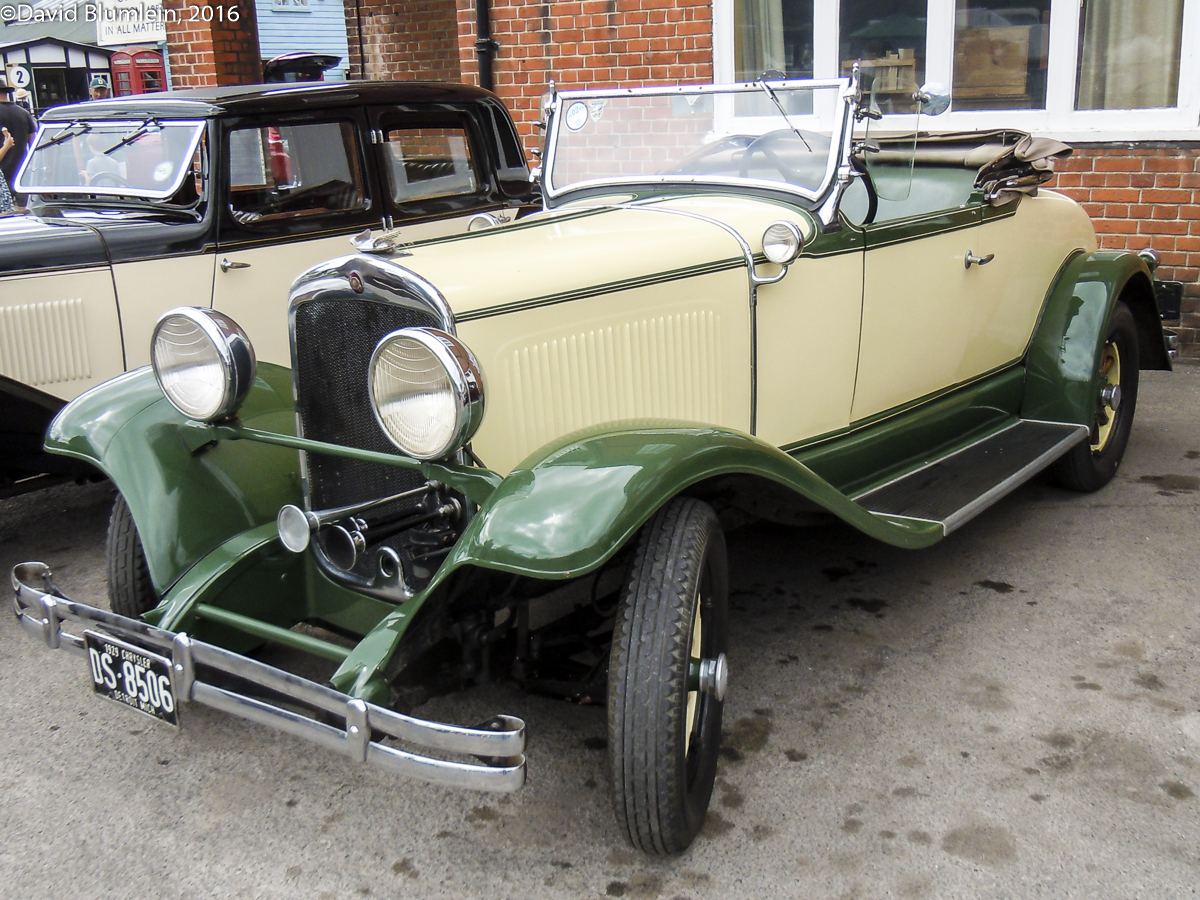
A 1929 Chrysler 65. This was the basic offering of the range for the 1929 season with a six-cylinder side-valve engine of 3,200 c.c. A 65 model covered 53,170 miles non-stop to set a world endurance record in Germany.
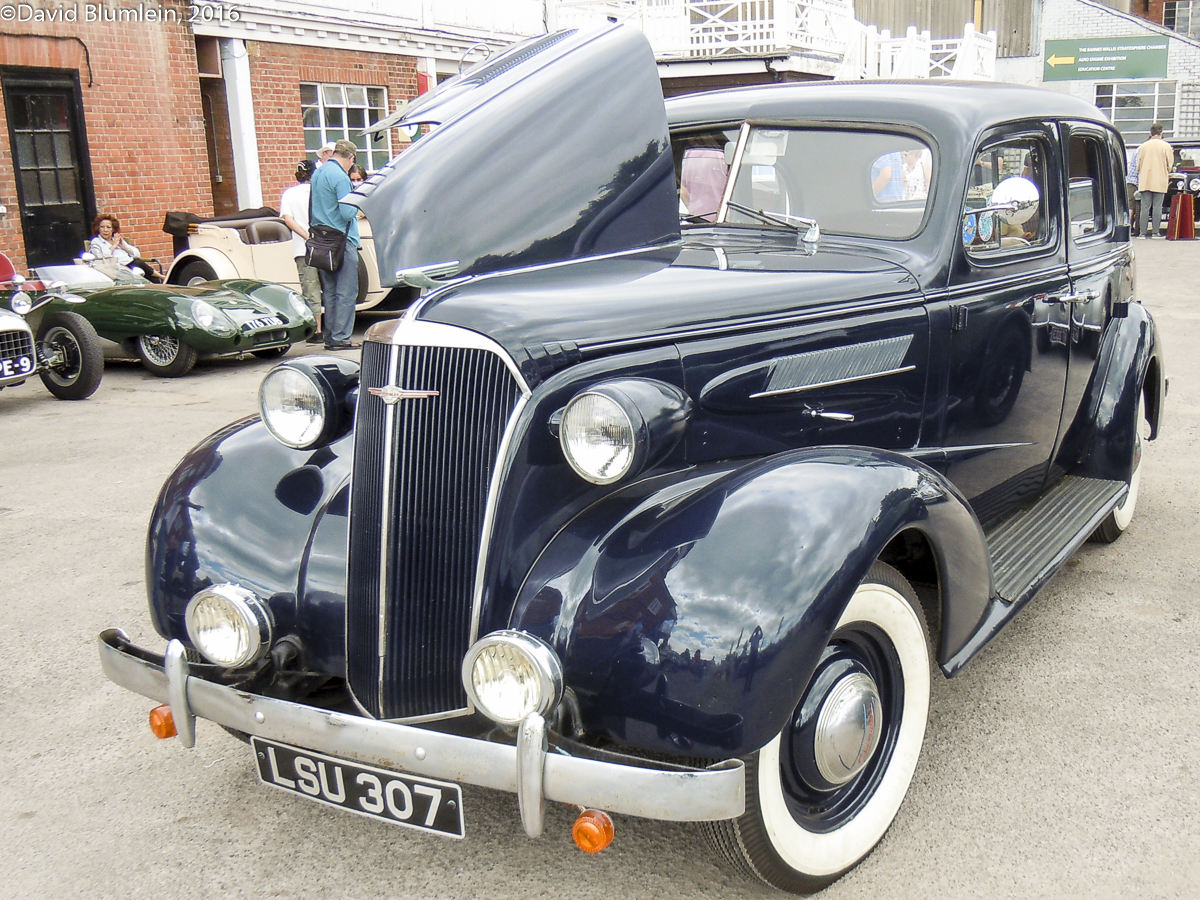
A 1937 Chevrolet Master Sport. This car was assembled in South Africa by General Motors, hence the right-hand drive.
Here is its 3.5-litre six-cylinder o.h.v. engine:
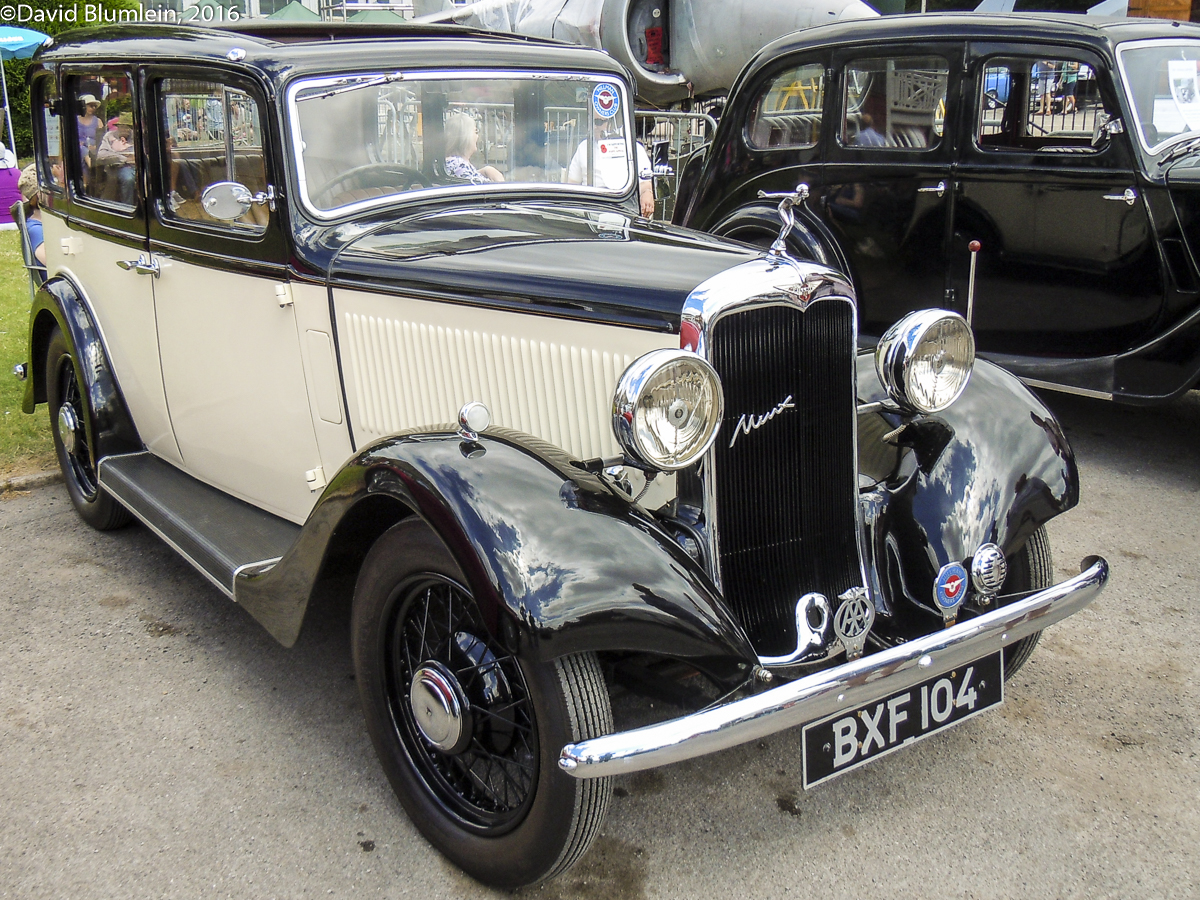
A superb example of a 1935 Hillman Minx. The work of Capt. Irving (of Golden Arrow fame) and Alfred Wilde, this model did much to put the Rootes Group on the international stage.
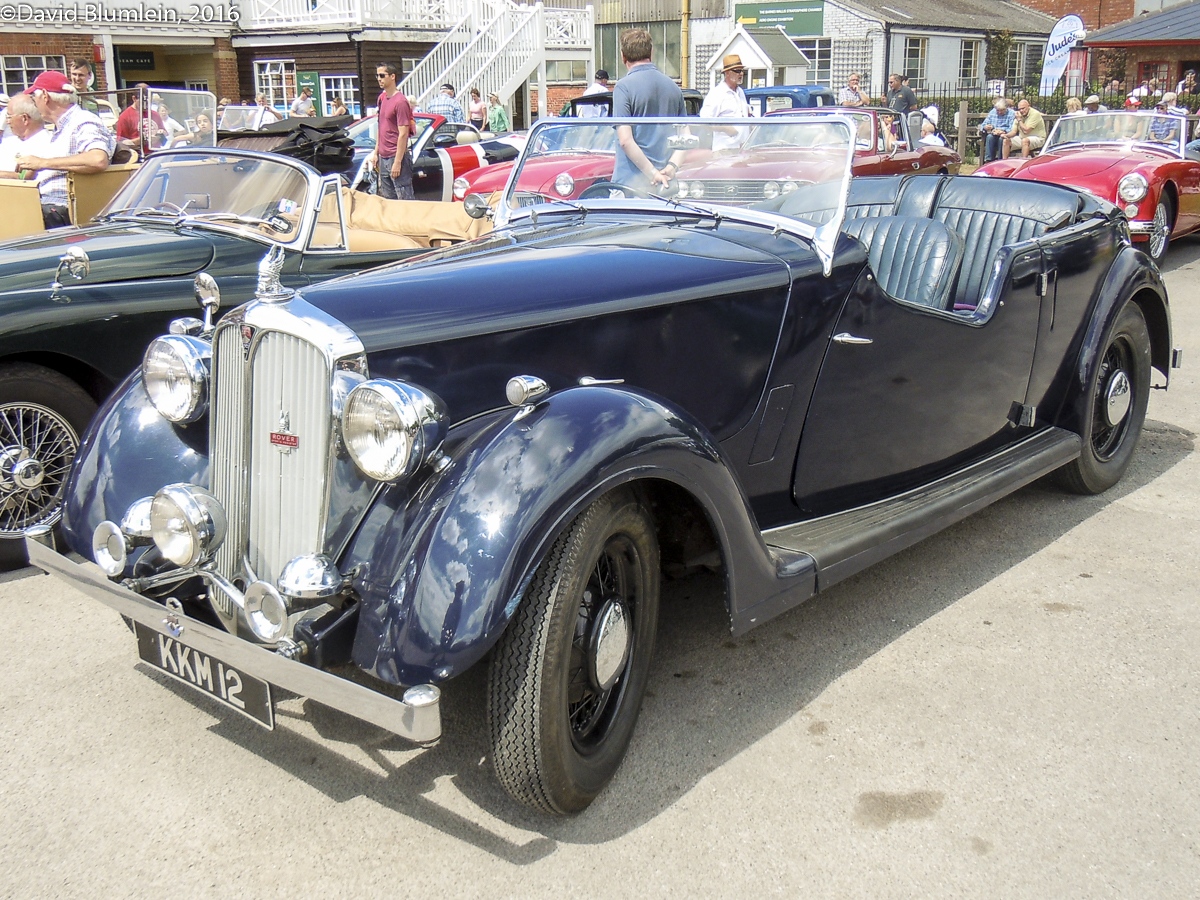
A lovely Rover 12 Tourer, showing the influence of the Wilks brothers who turned Rover into “One of Britain’s fine cars”.
And here is a rear view:
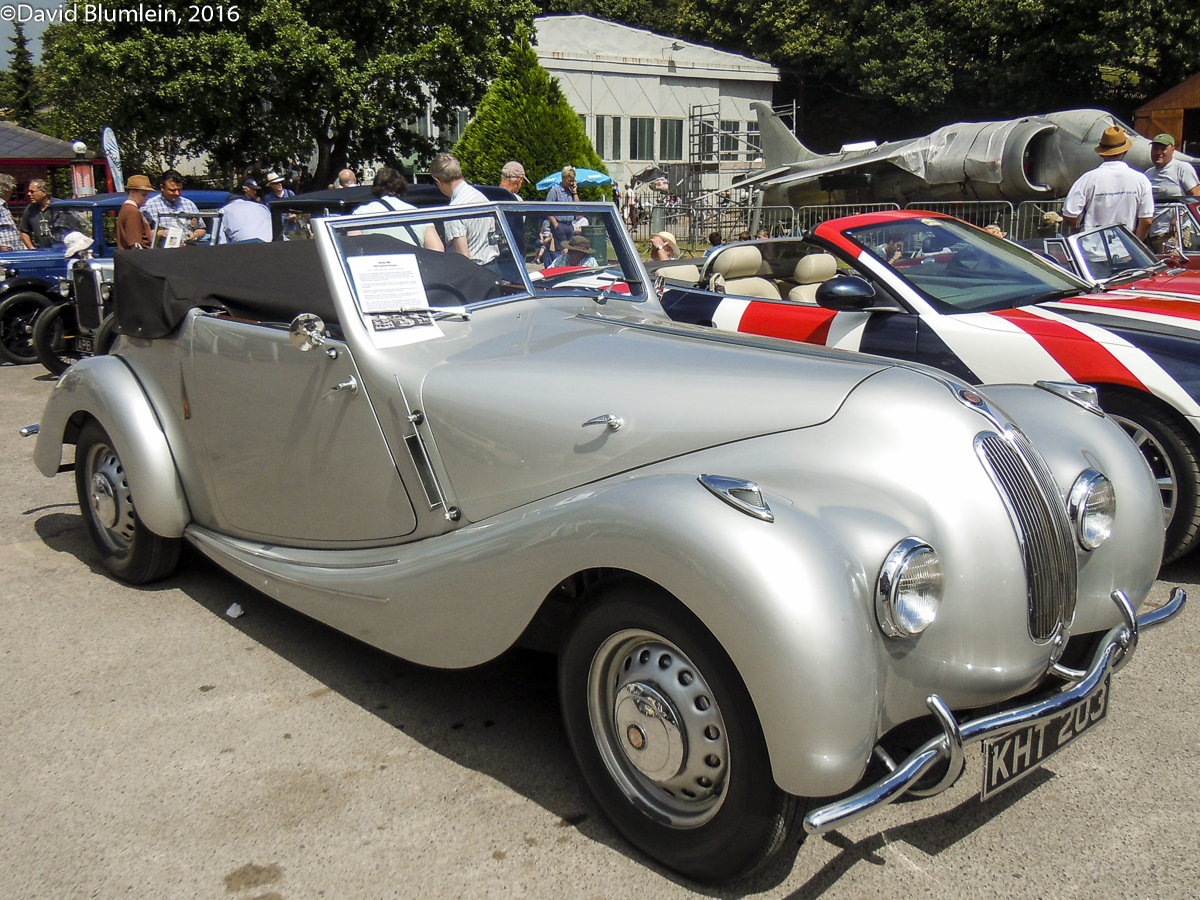
This is an exceptionally rare car – a 1946 Bristol 400 Drophead prototype. During 1946 Bristol, with plans to enter the car market, built two prototype saloons and two drophead coupés. Despite being used in publicity material and being shown on the Bristol stand at the Geneva Show in 1947, the 400 Drophead programme was cancelled.
TAILPIECE
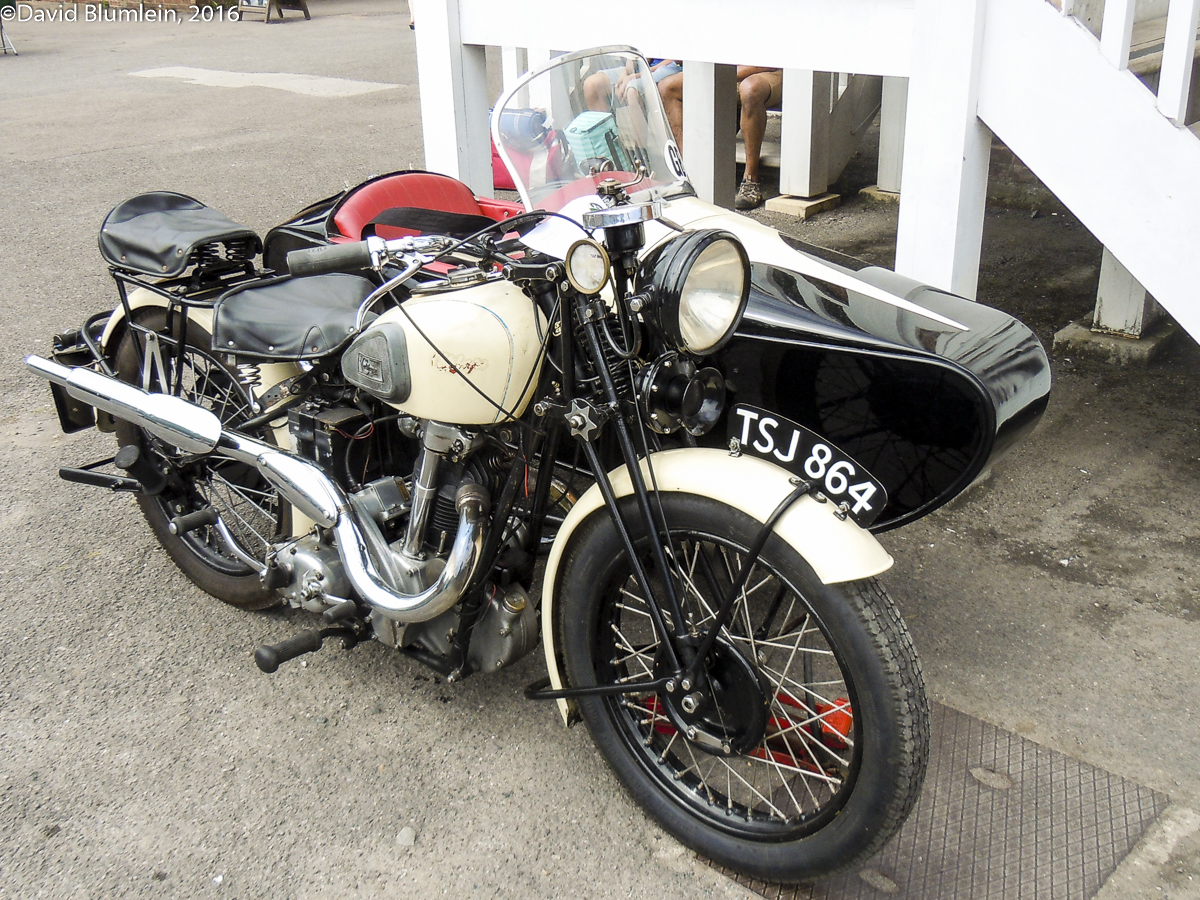
I have never been a motor cycle enthusiast but I could not resist the temptation to snap this machine – a Calthorpe motor cycle! Calthorpe cars, yes, popular in the first two decades of the 20th century, I know about – they even ran cars in the 1908 Tourist Trophy (Leslie Porter finished 4th) and in the 1912 Coupe de l’Auto race. Well, those motor cycles eventually outlived the cars, being produced up to 1938!
David Blumlein, August 2016
The Goodwood Festival of Speed defies gravity, sticking to the heights of automotive excellence year after year. The 2016 event was no exception to this rule. Our ace man behind the camera, Simon Hildrew, had his Nikons primed and set to stun…………..
I wrote this nearly two months ago in the aftermath of the great race, it has since mouldered in an editor’s in-box, neglected, unpublished and unpaid. Bollocks to that, I will post it now for those who are interested, though I am told that the final story still has one great twist that will see the light of day soon.
After nearly 40 years of covering the Le Mans 24 Hours I thought I had seen it all. In 1978 I witnessed Renault crush Porsche in an emotional performance driven by patriotic French fervour. Vive La France indeed! I saw Porsche regroup to dominate the 80’s till the return of Jaguar to La Sarthe with their amazing victories in ’88 and ‘90. The scenes of celebration by the well refreshed Brits were so extreme that the authorities passed a law announcing grave sanctions against “facteurs de trouble et aux recidivists” who disturbed the dignity of great French sporting events, well that was my card marked.
The 90’s saw the race almost disappear courtesy of the machinations of Ecclestone and Mosley, who had complete control of the FIA, but somehow the ACO held firm and since Audi arrived in 1999 the future has looked brighter and brighter. The current rules package of hybrid technology for the front-runners brings the Le Mans 24 Hours back to the vanguard of developing automotive solutions to the question of personal transport in the 21st Century.
During my time at La SartheI have seen dull races, exciting races, close races, sometimes all in the same year. But I have never seen a team come so close to the prize they have chased for 31 years and fail on the last lap. Cruel and heartbreaking for the team does not do this situation justice. Toyota had earned their victory the hard way out running both Audi and Porsche for 23 hours and 57 minutes, unfortunately as everyone knows the #5 Toyota TS050 with Kazuki Nakajima at the wheel stopped just just after crossing the line for the final lap. The Toyota had been losing speed during the penultimate lap, with the problem being a failing turbo that caused the systems to shut down, stranding Kaz on the start/finish straight.
Eventually the stricken car was fired up after some desperate work to over ride the electronics and the car crawled round to complete the race, this took over 11 minutes, way over the time limit of 6 minutes for the final lap. As a consequence, and adding insult to injury, the Toyota was excluded from the results as a non-finisher, the disaster was complete.
There were scenes of misery in the Toyota pit as the impact of being so near and yet so far from victory began to hit home. There was some comfort to be had in the reaction of the Audi and Porsche teams, who truly understood what had been lost by their Japanese rivals. Perhaps this respect was best articulated by Oliver Jarvis, the Audi driver whose car inherited a podium position after their rival’s demise.
“I’d much rather not be on the podium to see the Toyota guys up there instead. It’s a horrible way to finish. It’s not what anyone wanted to see, they deserved to win. But at the end of the day, it’s a 24-hour race and you have to make sure you make it to the finish. It’s a strange feeling. We’re up there on the podium and it’s important for the Championship, it’s a reward for all the hard work, but it’s not the way we wanted to achieve it. You always know something can go wrong but you’d like to think that if it’s going to do it, it happens a couple of hours before the end, not three minutes. I can’t even imagine how they feel. We were absolutely gutted in the Audi garage and it’s not even our car. It’s going to take them a long time to get over that, if ever. Le Mans is a race that you can do a hundred times and never win it, and they were so, so close.”
This was sportsmanship of the highest order, a complete contrast to the unsavoury behaviour of Ford towards their Ferrari opponent in the GTE PRO arena. (I wrote about that classless episode HERE) That being said Ford will go down in the record books a 1-3-4 finishers in class, a significant achievement on a par with anything they have managed in the past. Ford read the rules, built a car to win, then executed their plans with skill and precision, few teams ever match that level of performance against such strong opposition. So a big salute to all involved, it was a case of mission accomplished, the end justifying the means.
A sure sign that the Le Mans 24 Hours is a world class event is the presence of stars of screen and sport, everywhere you looked there were celebrities wanting to get a piece of the action. Brad Pitt had the honour of waving Le Tricolore to get proceedings underway; also in attendance from the ranks of Hollywood were Keanu Reeves, Jason Statham and Jackie Chan. The latter having an share in one of the teams competing, Baxi DC Racing. A Hollywood regular at Le Mans, Patrick Dempsey was not driving this year but was supporting his team Dempsey-Proton Racing, it was a case of stars and cars.
From the wider world of sport two drivers stood out. Fabian Barthez, the great French footballer and one of the 1998 World Cup Winners, now has his own team in association with ex-Grand Prix star, Olivier Panis. Racing a Ligier JS P2 Barthez finished a fine 8th in the LM P2 class. Another star was ex-Olympian, Sir Chris Hoy, winner of no less than six Gold Medals at three Olympics. Since retiring from competitive cycling after the 2012 London Olympics Hoy has embraced motor sport and fixed his aim on racing at Le Mans. This year he achieved his ambition, like Barthez driving a Ligier JS P2, though he finished five places behind his fellow sporting legend.
It would be true to say that all 179 drivers who started the 2016 Le Mans all climbed some kind of personal Mount Everest, it is that kind of race and that kind of place. But, as Orwell observed, “All Pigs are equal, but some are more equal than others……” I also doubt that anyone on the grid would contend that they climbed a higher mountain than Frédéric Sausset, whose tale is both astonishing and inspirational.
Astonishing in that Sausset is a quadruple amputee, a deadly infection after a simple scratch back in 2012 led to the loss of his limbs. Instead of indulging in self-pity this catastrophe inspired him to self-belief and an ambition, he would drive one day in the Le Mans 24 Hours and he has made this goal his focus since then.
When this project was announced there were many, like myself, who questioned the wisdom of the whole affair. I was wrong, it was humbling and inspiring to witness at close quarters the strength of character displayed by Sausset, his family, friends and supporters. I doubt that many of us would match the determination and sheer guts, I know I could not. Sausset completed five stints and ran at a reasonable pace and made it to the finish despite being delayed by clutch problem, it was a victory for the human spirit.
The 2016 Le Mans 24 Hours will go down in history as one of the great races in the rich tapestry of this event, dating all the way back to 1923. Roll on June 17-18th 2017………..I can’t wait for the next episode.
John Brooks, August 2016
We are enjoying something of a purple patch from The Special Correspondent, last week he travelled to the vintage venue of Shelsley Walsh for something truly special…………….
In the Twenties and Thirties the Shelsley Walsh Hill Climb acquired considerable importance for British motorsport. After the Kop Hill accident in 1925, use of the public roads for competition purposes was completely banned, providing an impetus for Shelsley, which was located on private land. Participants in motor sport in Britain therefore had a choice of only the Worcestershire hill climb or Brooklands until Donington came on the scene in the mid-Thirties and Prescott in 1938.
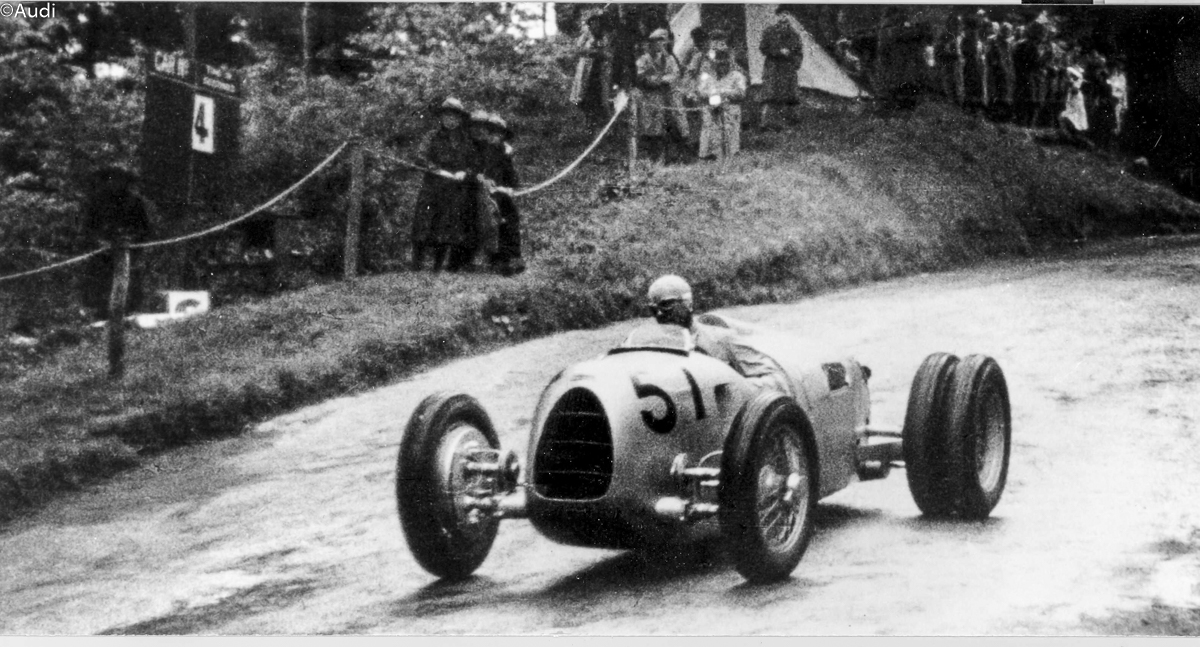
This had the effect of attracting good quality entries and manufacturers were certainly aware of its importance. For example, we find the Riley Motor Company electing to introduce its new “Nine” to the public at the 1926 Shelsley meeting. Prime Minister Stanley Baldwin attended the meeting in 1928 and famous foreign racing drivers like Rudi Caracciola appeared with the big sports Mercedes-Benz. The very rare Spanish Nacional Pescara came hunting European Hill Climb Championship points and Jean Bugatti, Ettore’s son, brought the four-wheel drive Type 53 Bugatti – alas, he crashed it at Kennel Bend. And there was even Count Premoli’s supercharged class-winning Bugatti-Maserati which had been towed all the way from Milan!
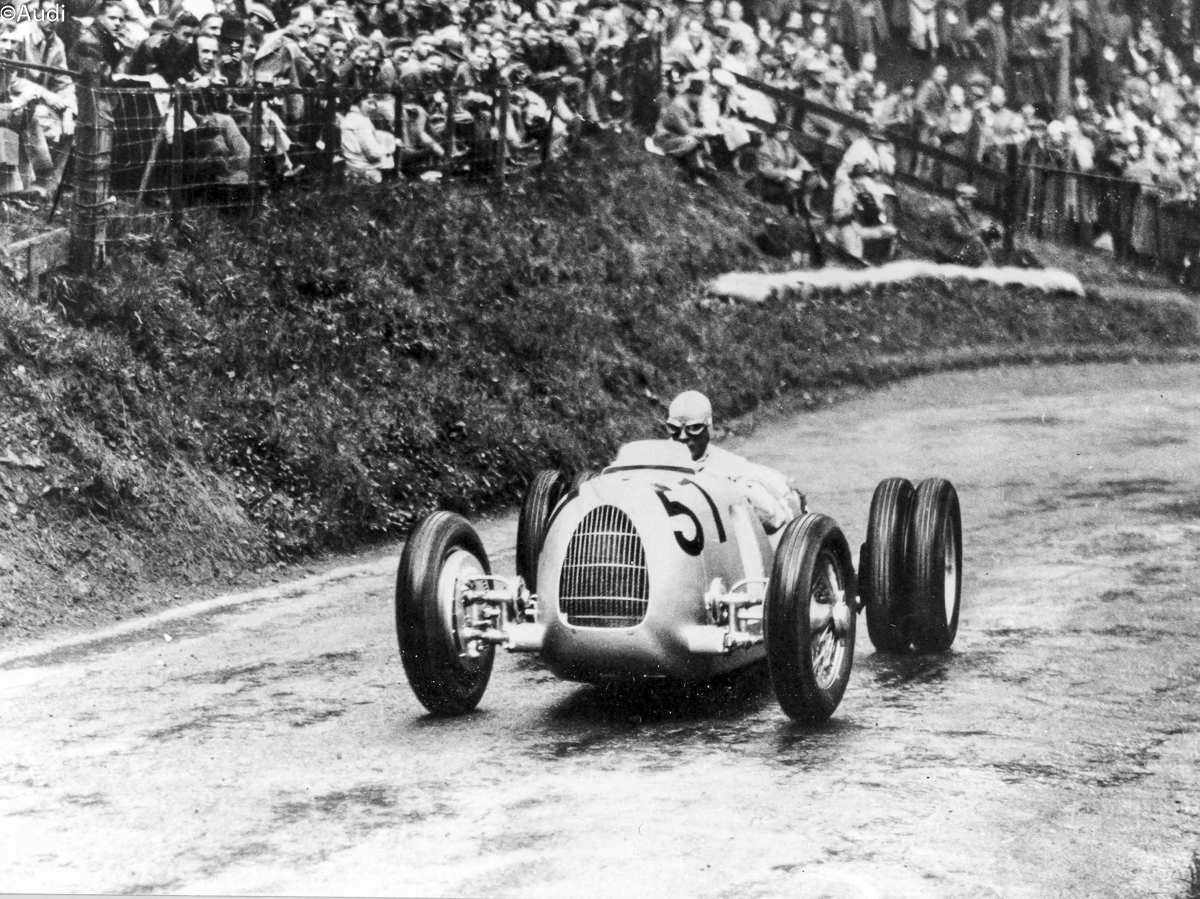
In 1930 the Bergmeister Hans Stuck appeared with the blue and white 3-litre Austro Daimler and set a record time of 42.8 seconds which was not broken for nearly three years. In 1936 he came back with a C-type Auto Union Grand Prix car, with a shortened chassis and twin rear wheels. He was unlucky because it rained when he made his climb and the big German car with over 500 b.h.p. was too much of a handful in the conditions to set a new record – “too many horsepowers” – he proclaimed.
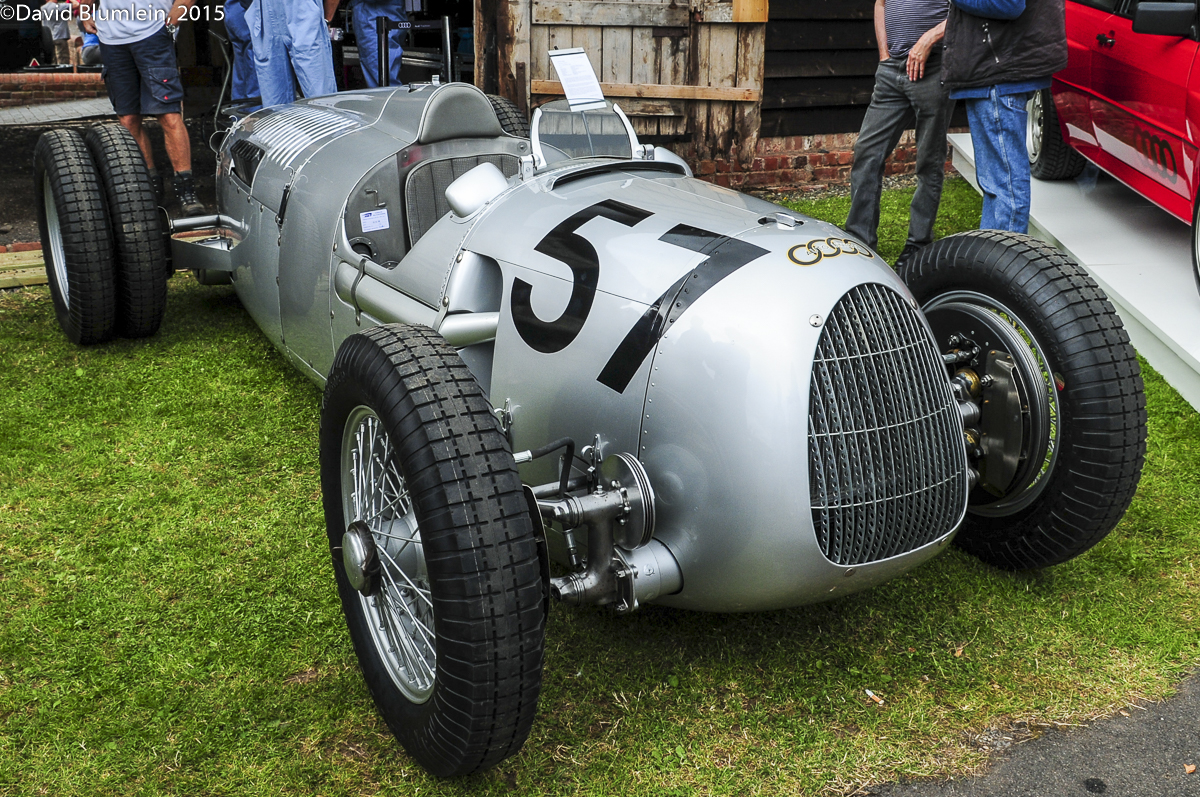
The 80th anniversary of this appearance formed the highlight of this July meeting. The Audi factory had previously commissioned the totally faithful construction by Crosthwaite and Gardiner of a C-type Auto Union which Audi uses for demonstration purposes. The son of Hans Stuck, the well-known current driver Hans-Joachim Stuck, was dispatched complete with this car to Shelsley to give four demonstrations, two on Saturday and two on Sunday.
Here is the car in the paddock, where everyone can go:
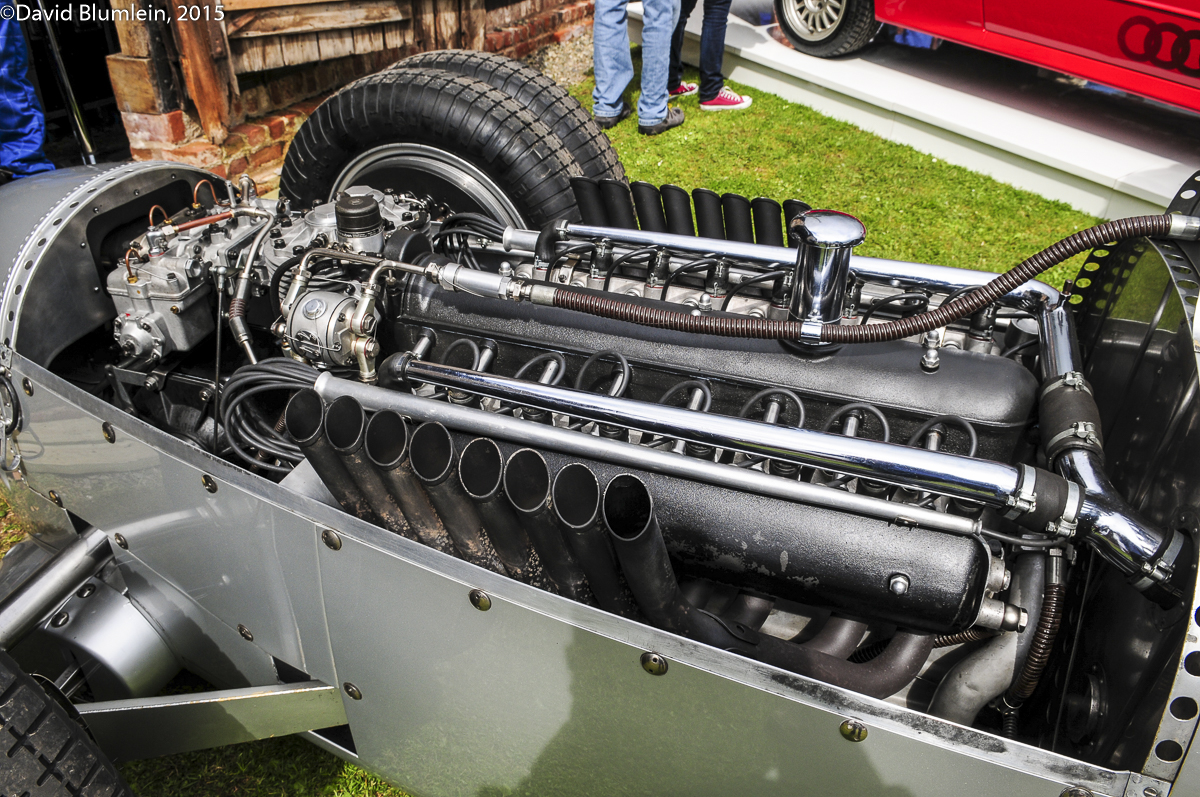
The mighty V 16 engine
and the cockpit:
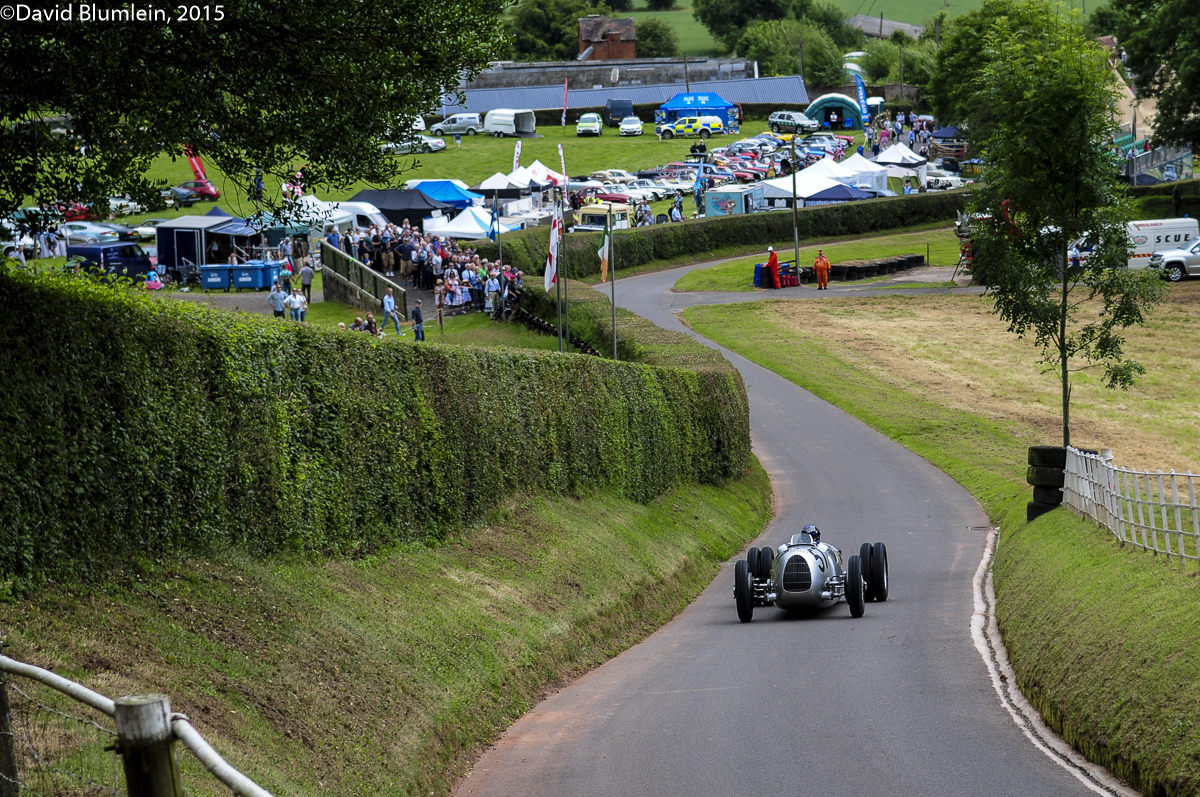
Now we see Stuck letting the car loose on the hill, first approaching the Crossing with the Kennel Bend in the background,
then in the Crossing
and further up the hill turning into the Bottom S:
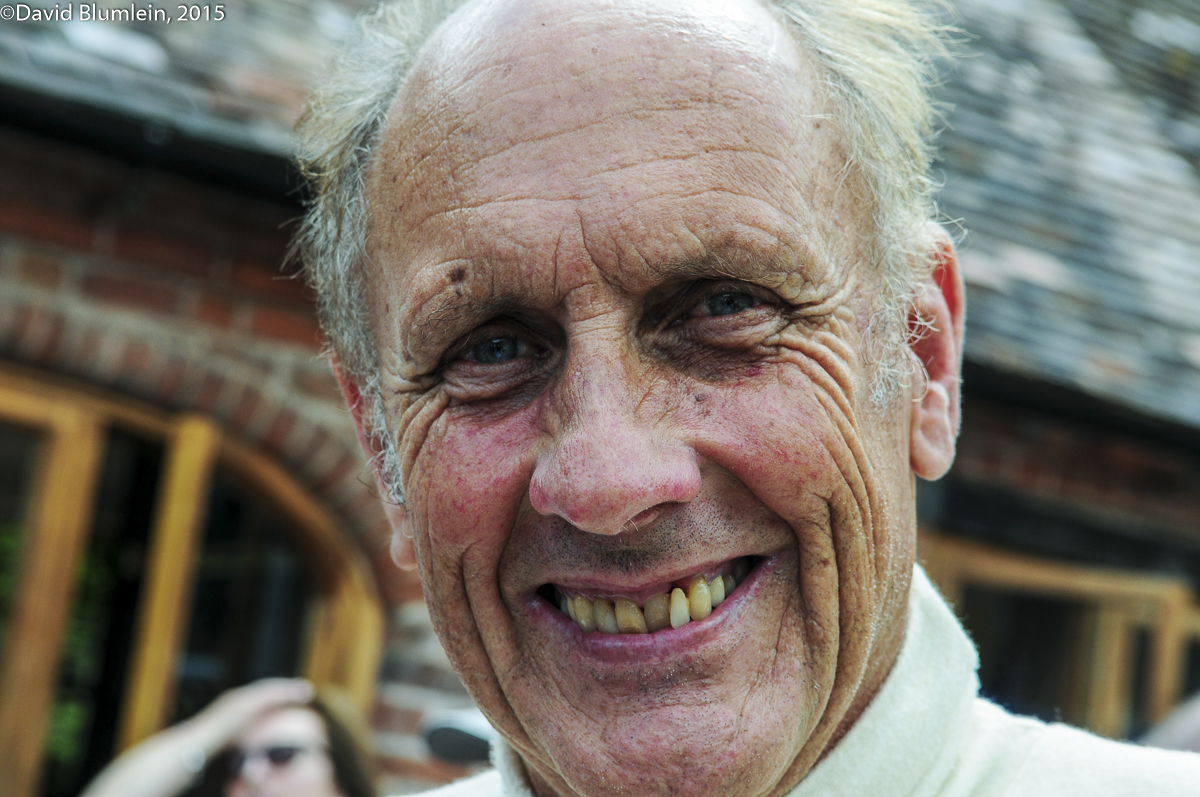
During the lunch break Stuck gave a public interview in the Courtyard after which he freely chatted with the race-goers; isn’t he like his famous father?
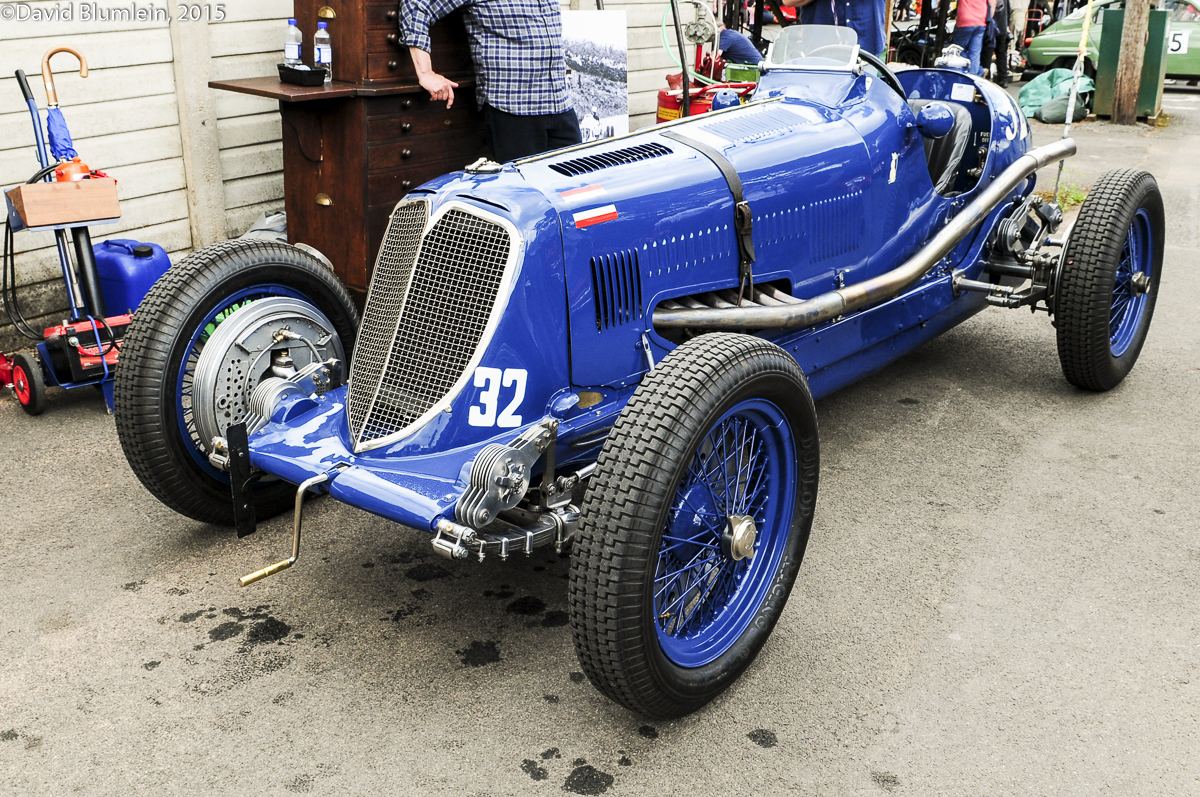
There was further nostalgia to be experienced – this is the Whitney Straight Maserati 8CM which went on to lower the record after Stuck (senior) had set it in the Austro Daimler:
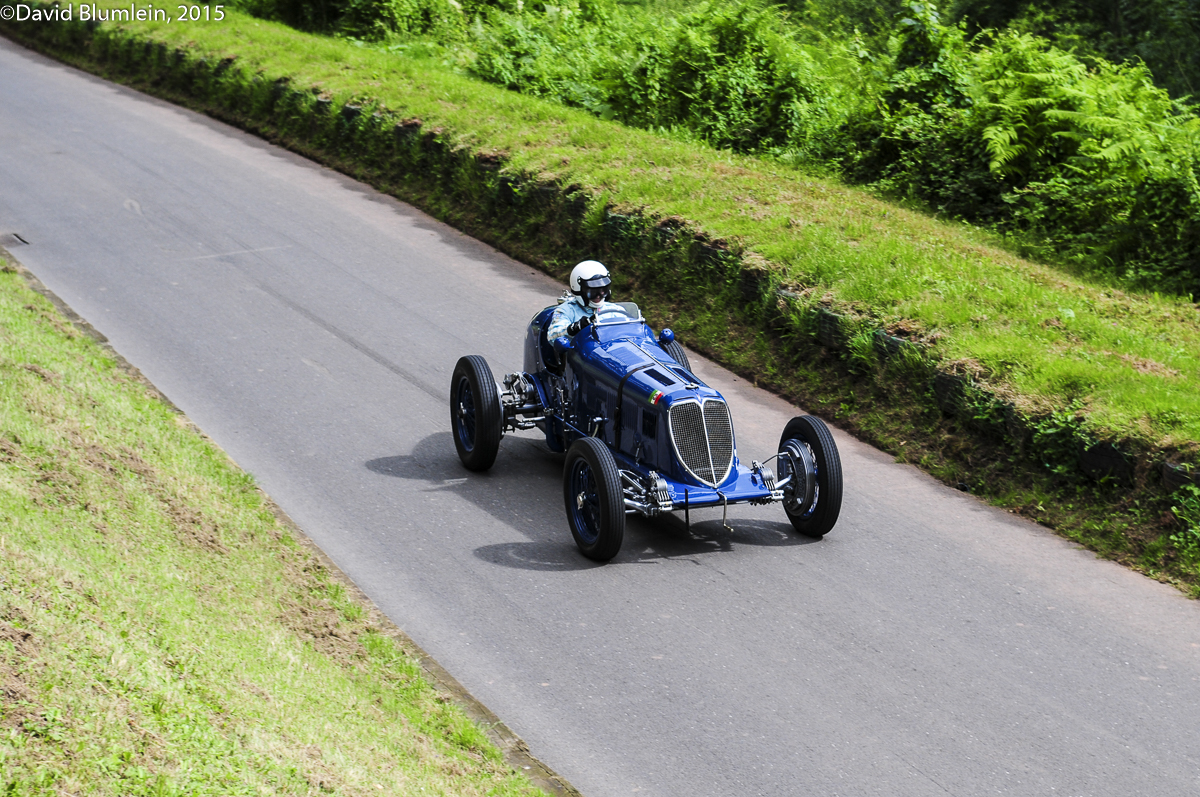
And here it is approaching at very high velocity the two S-Bends:
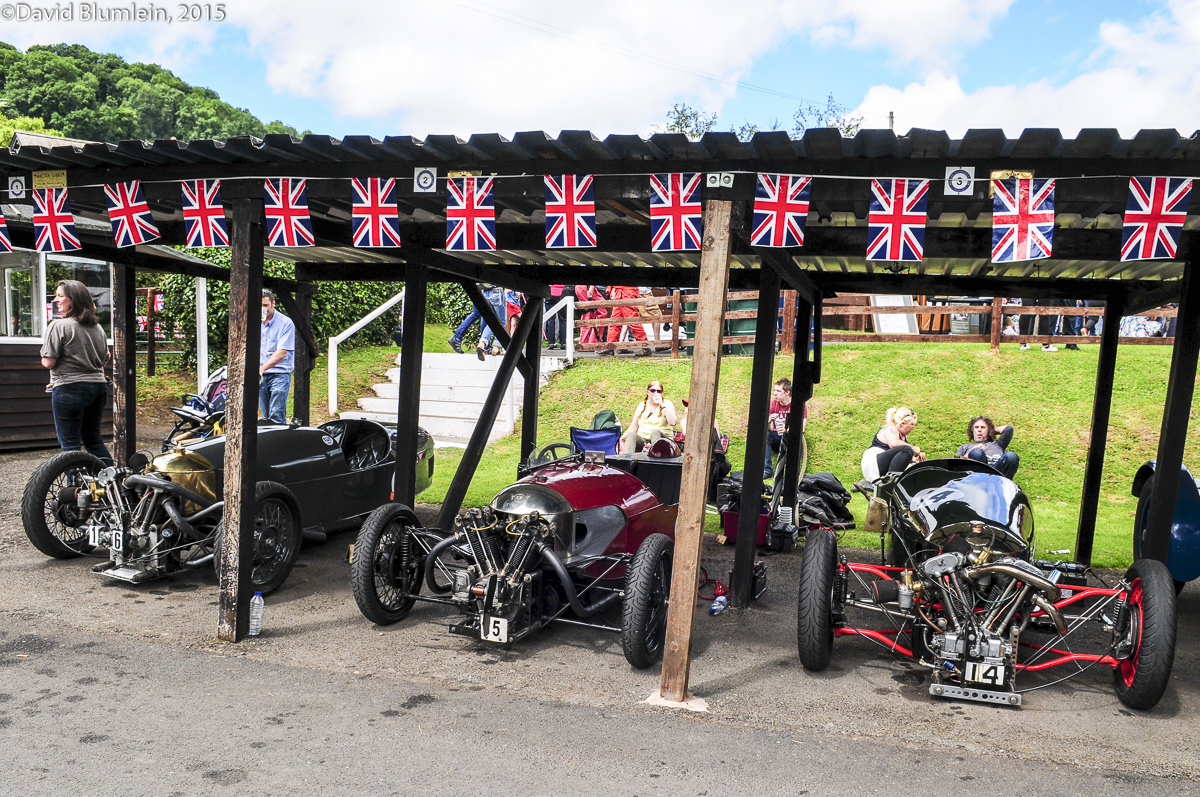
There were, of course, masses of other cars taking part, including these potent three-wheeler Morgans, lined up in their sheds in the paddock:
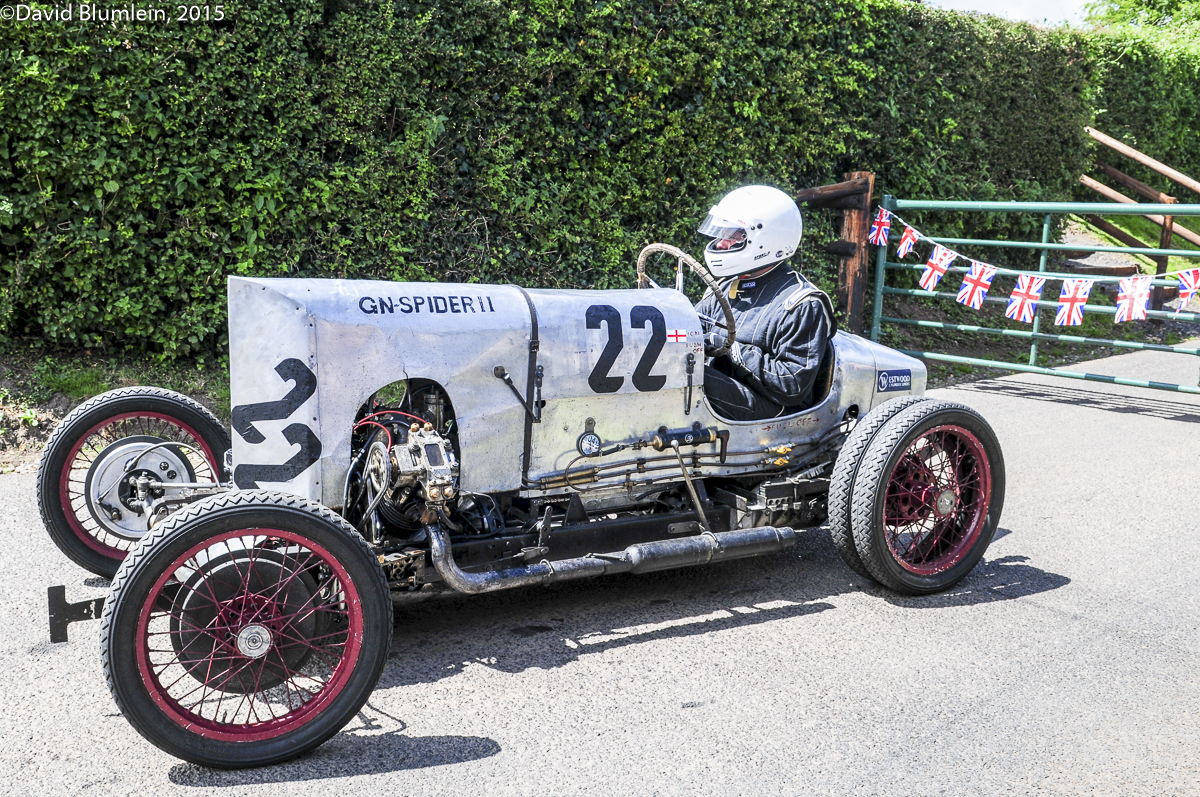
and the famous Shelsley Special Spider 11:
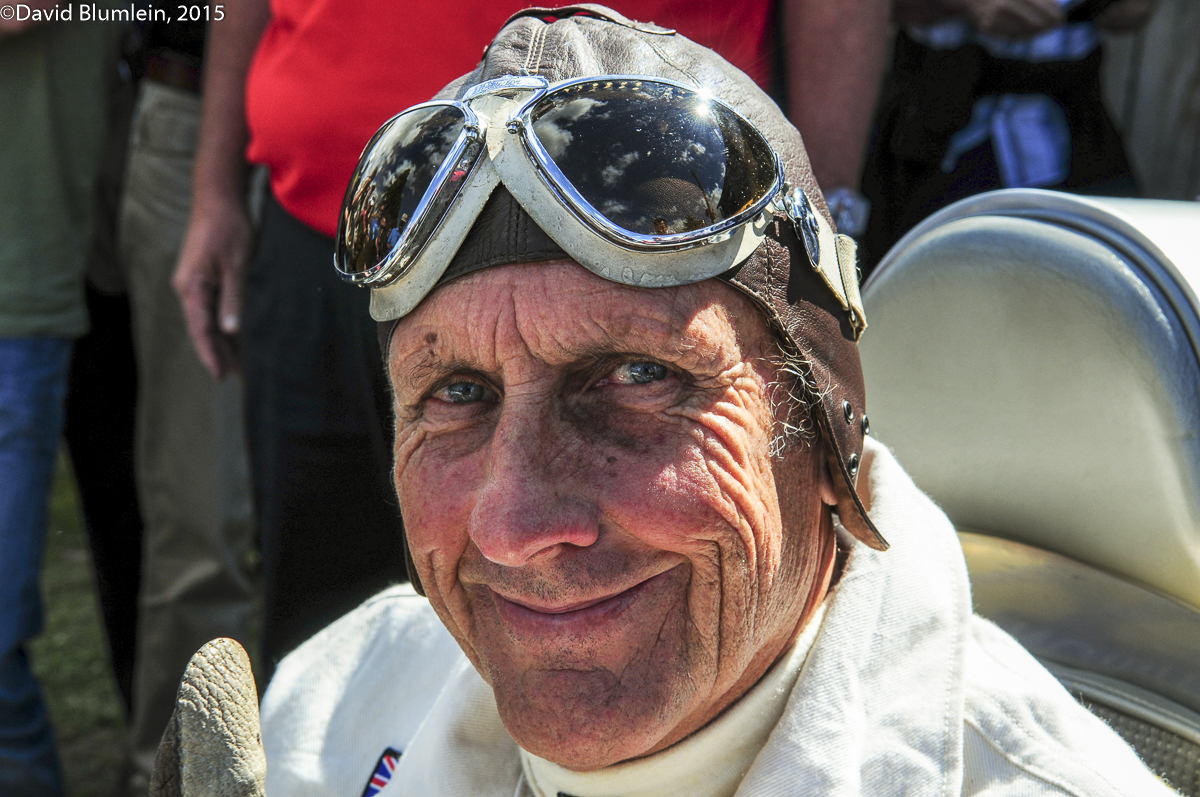
On the Sunday afternoon Stuck gave his last demonstration of the Auto Union, this time wearing the cloth helmet and goggles used by his father in the pre-war days:
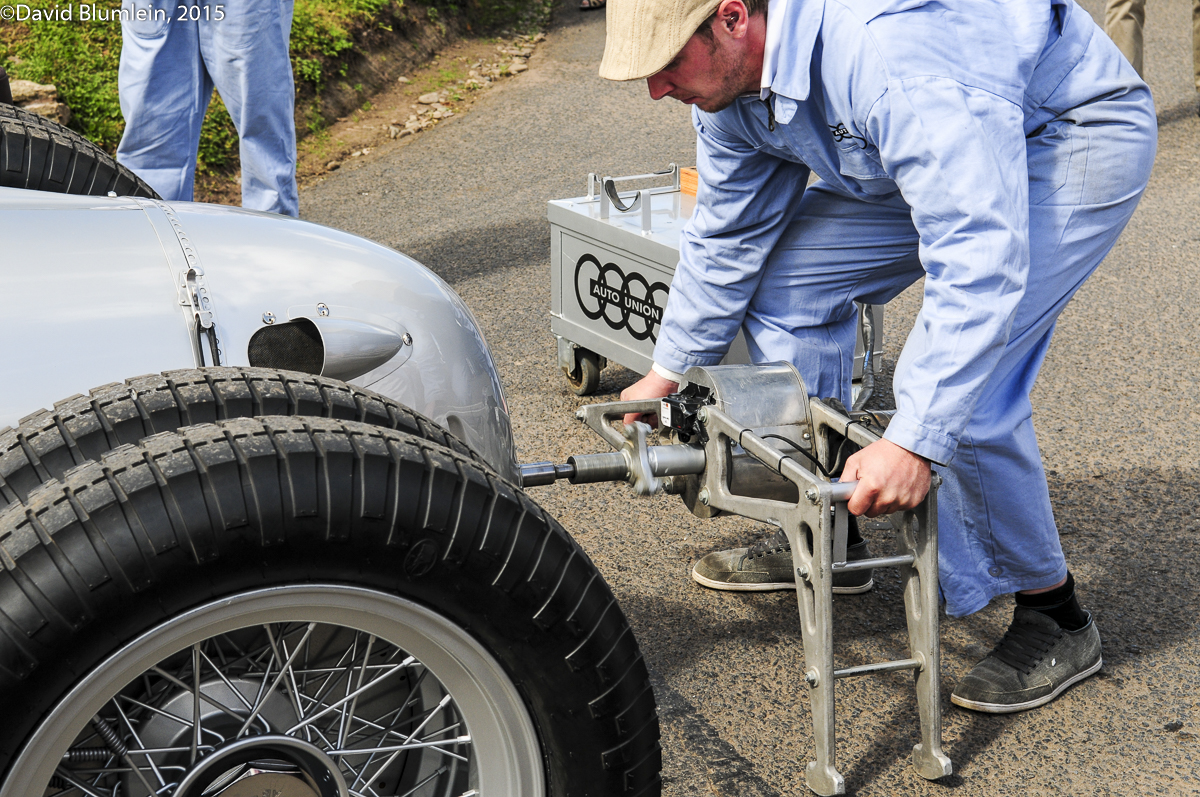
It was intriguing to watch the mechanics inserting the electric starter in the shaft at the rear to bring the raucous V 16 to life;
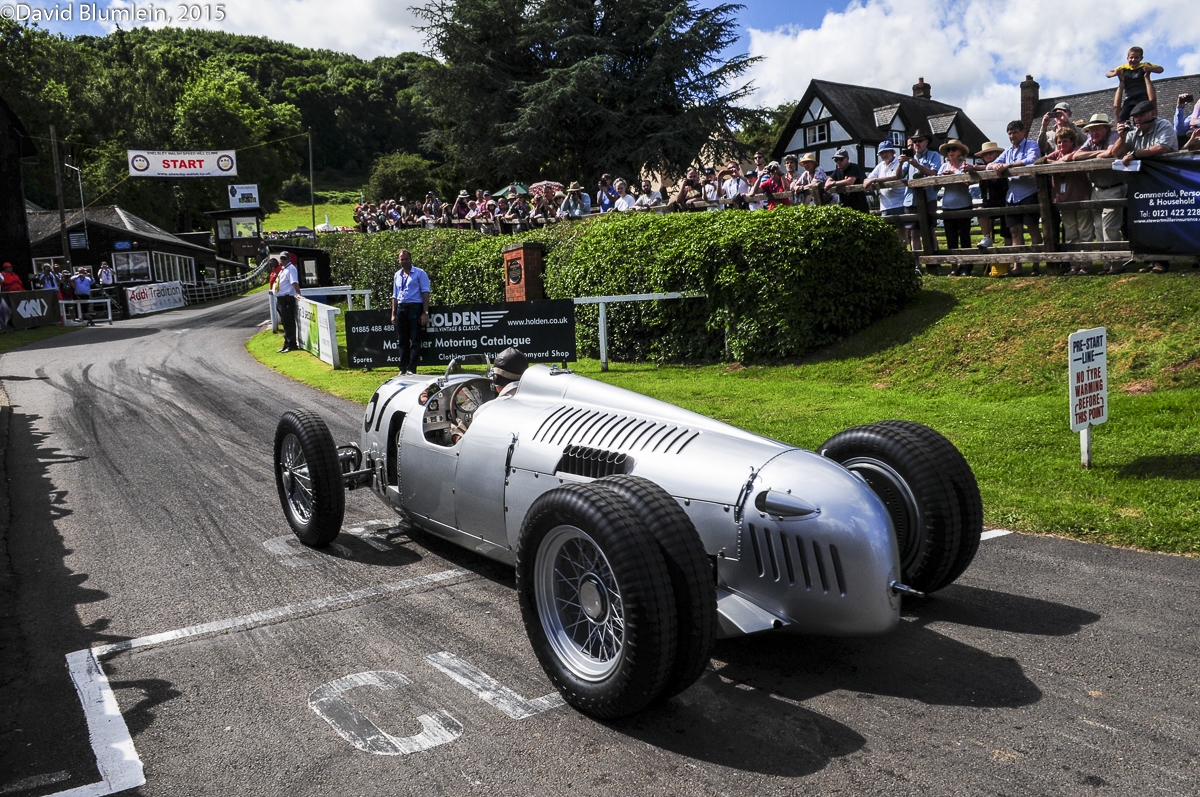
as Stuck sets off up the famous hill:
TAILPIECE
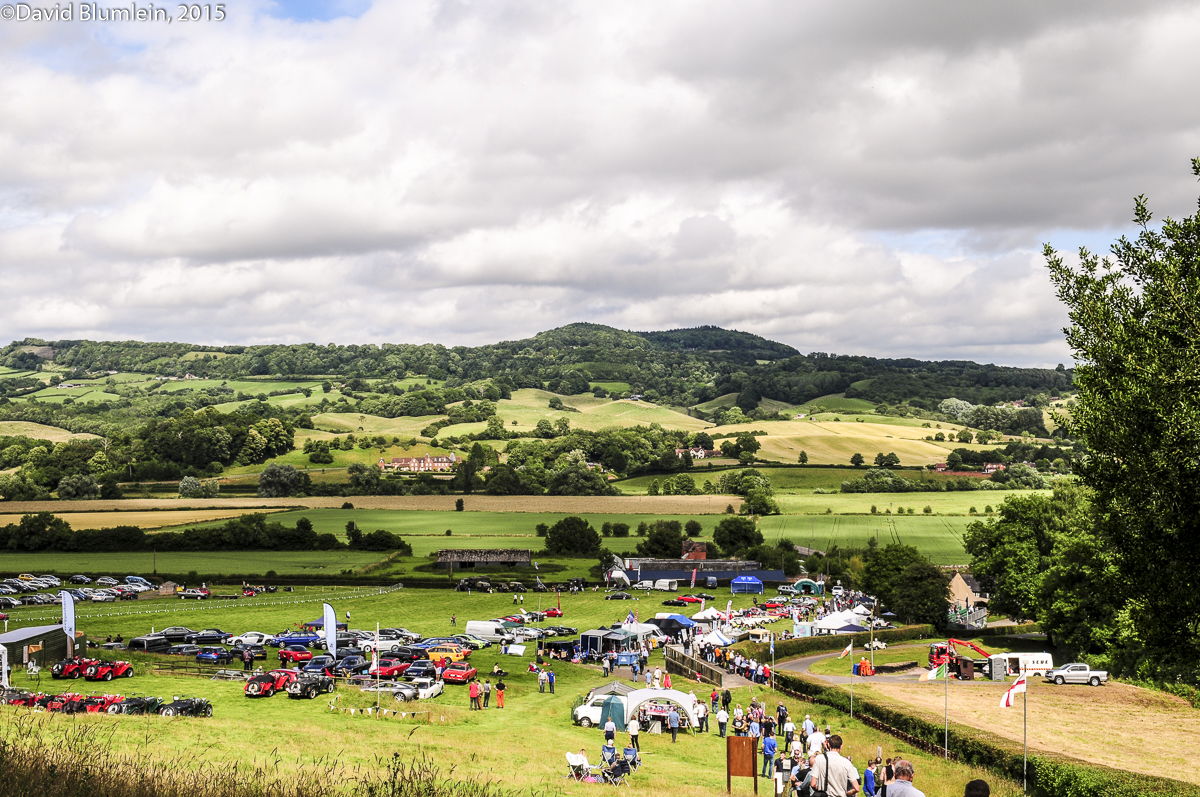
The beautiful setting of Shelsley Walsh in the valley of the River Teme in rural Worcestershire. The paddock and main buildings are behind the trees on the right.
David Blumlein, July 2016
The Special Correspondent paid his annual visit to Lord March’s Goodwood Estate for the Festival of Speed. He found much to admire and pass comment on, and he favours us with his reflections.
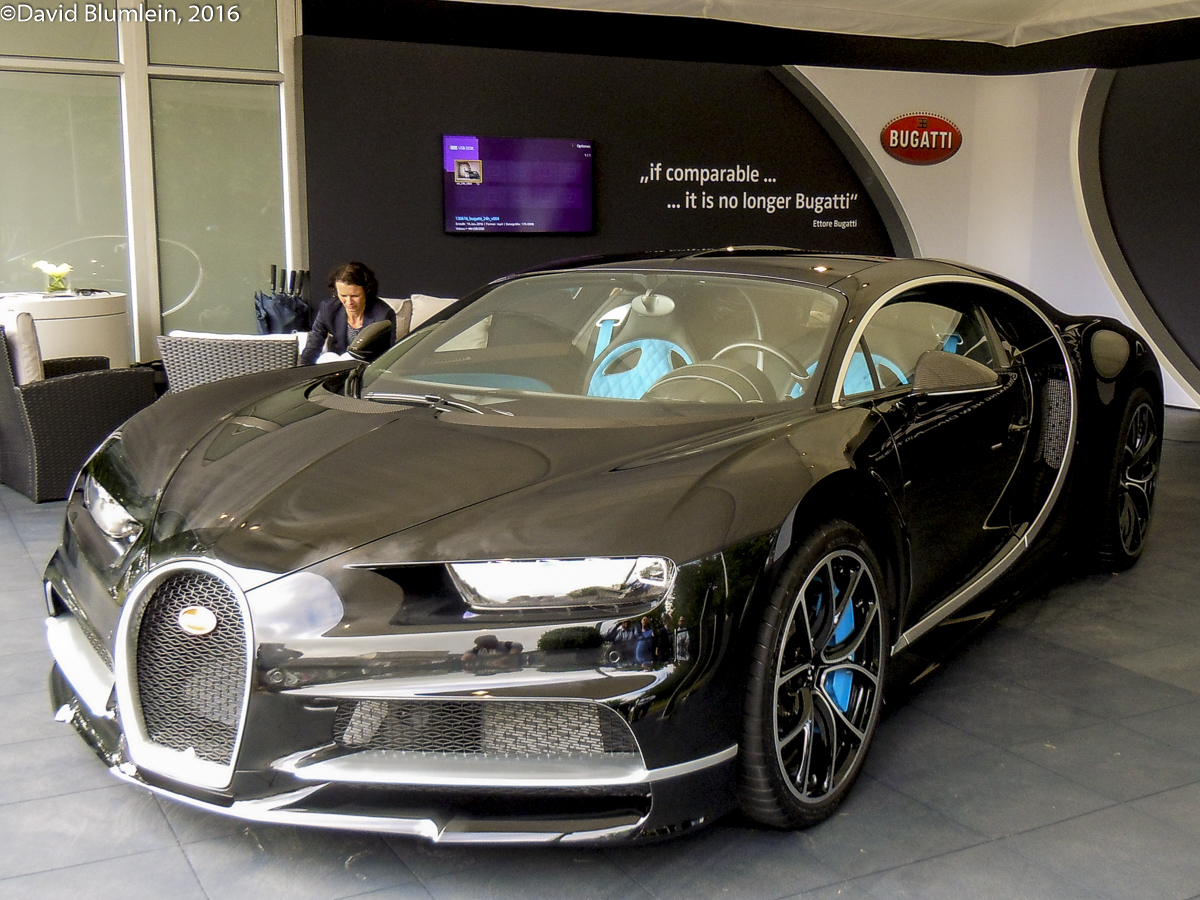
How better to start a visit than to be confronted with the new Bugatti Chiron?
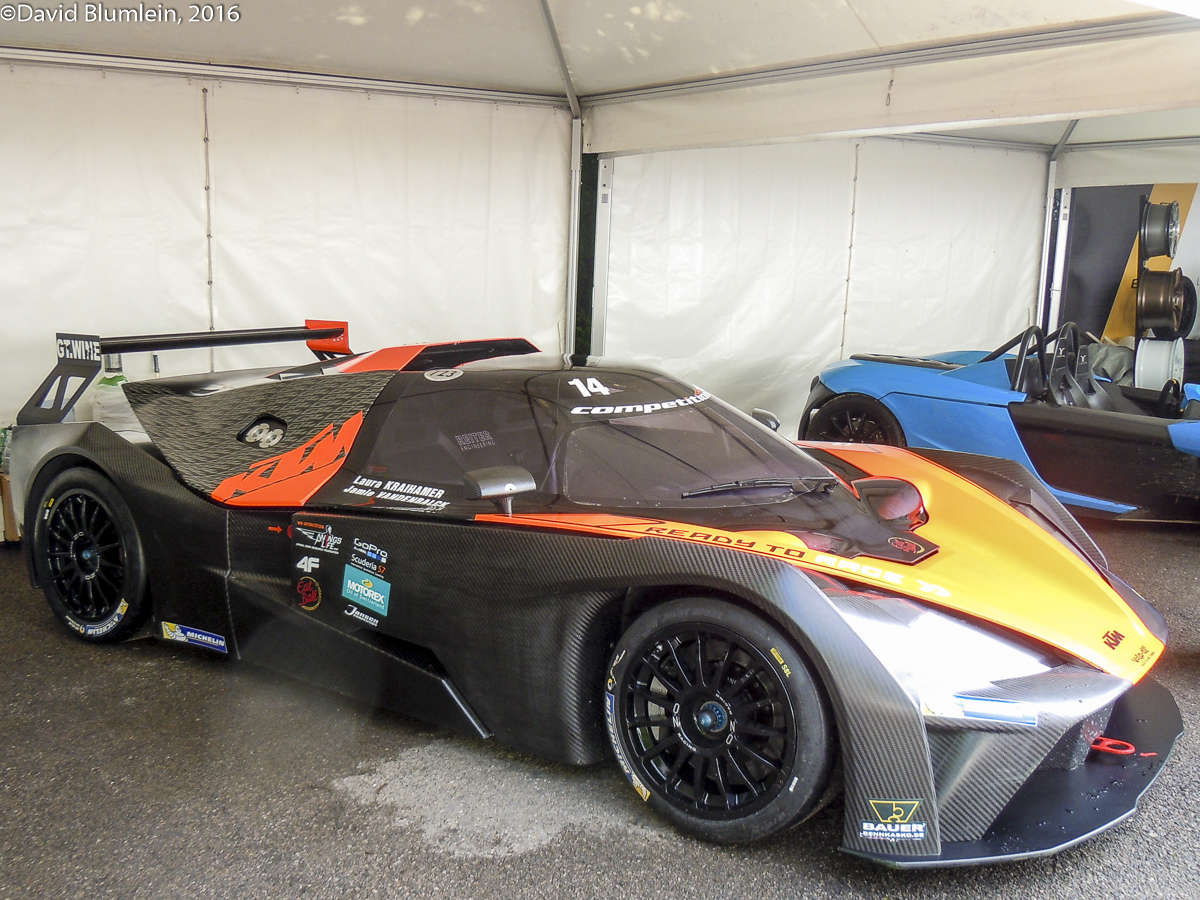
One is not at Goodwood very long before one sees a rare gem such as this KTM X-Bow GT4. Developed by Reiter Engineering it uses an Audi 2.0 TFSI 4-cylinder engine.
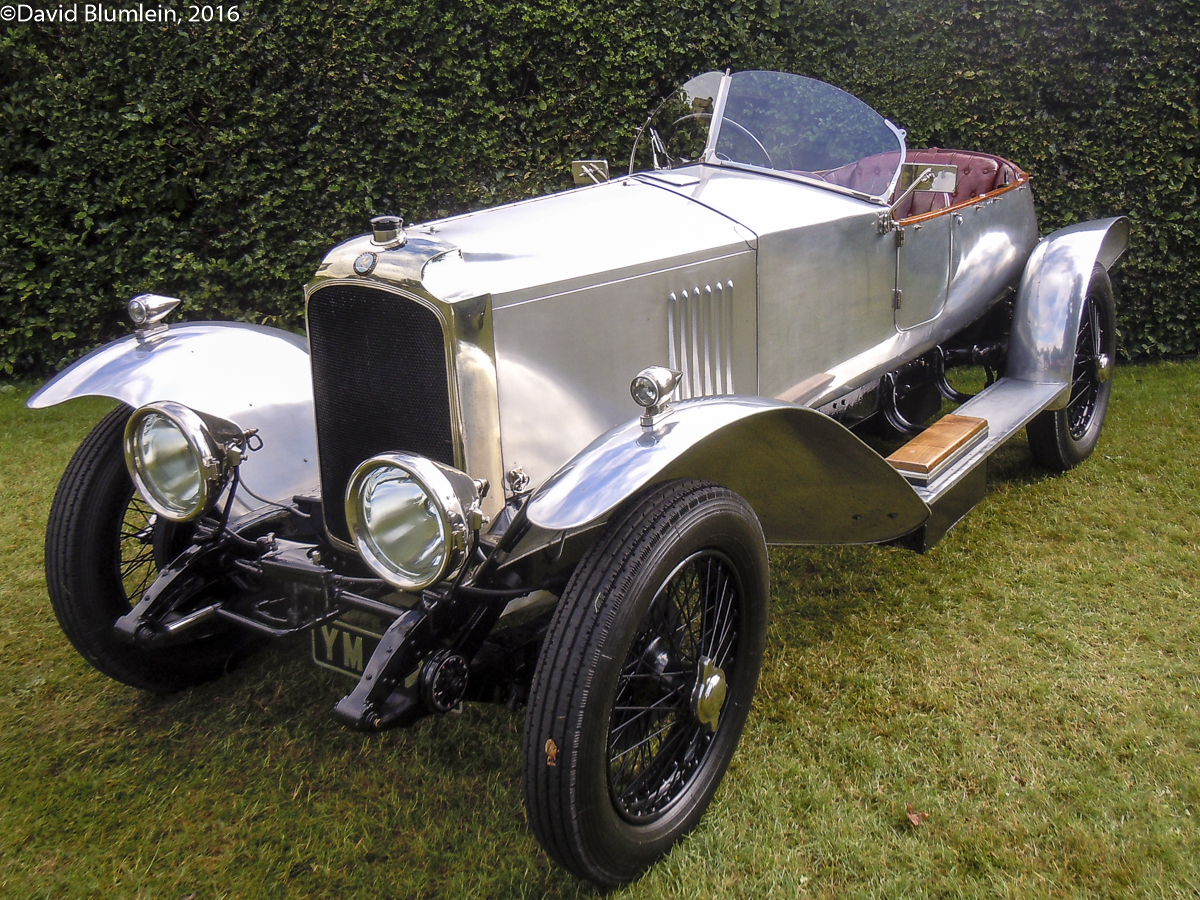
This 1924 Vauxhall Wensum is an example of the bespoke coachbuilt body styles fitted to the popular 30/98 chassis. Vauxhall’s works driver, A.J.Hancock, kept a fast motorboat on the River Wensum near Norwich, hence the boat tail and wooden marine decking interior.
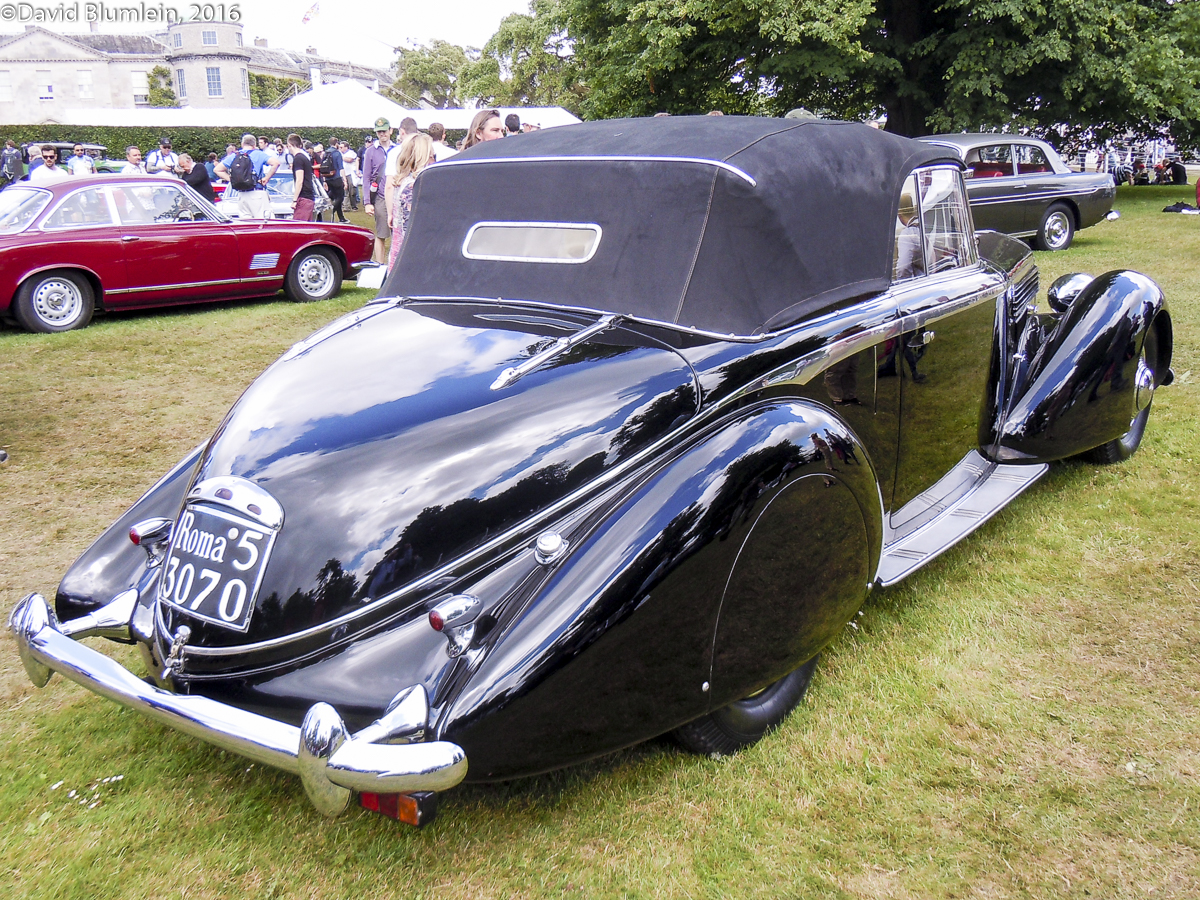
Following his Lambda masterpiece, Vincenzo Lancia created in 1931 the Astura with a brand new 2604 c.c. V8 engine for fast touring.
This is a 1933 example with Pinin Farina bodywork, one of a batch of five cabriolets for Lancia dealer Ernesto Bocca.
After the records by the 40CV cars in 1925 and 1926, Louis Renault asked his engineers to create a new record breaking car, the Nervasport, this a faithful recreation as the original has disappeared. It had a straight 8 side-valve engine and 3-speed gearbox. At Montlhéry in April 1934 it covered a record-breaking 5000 miles.
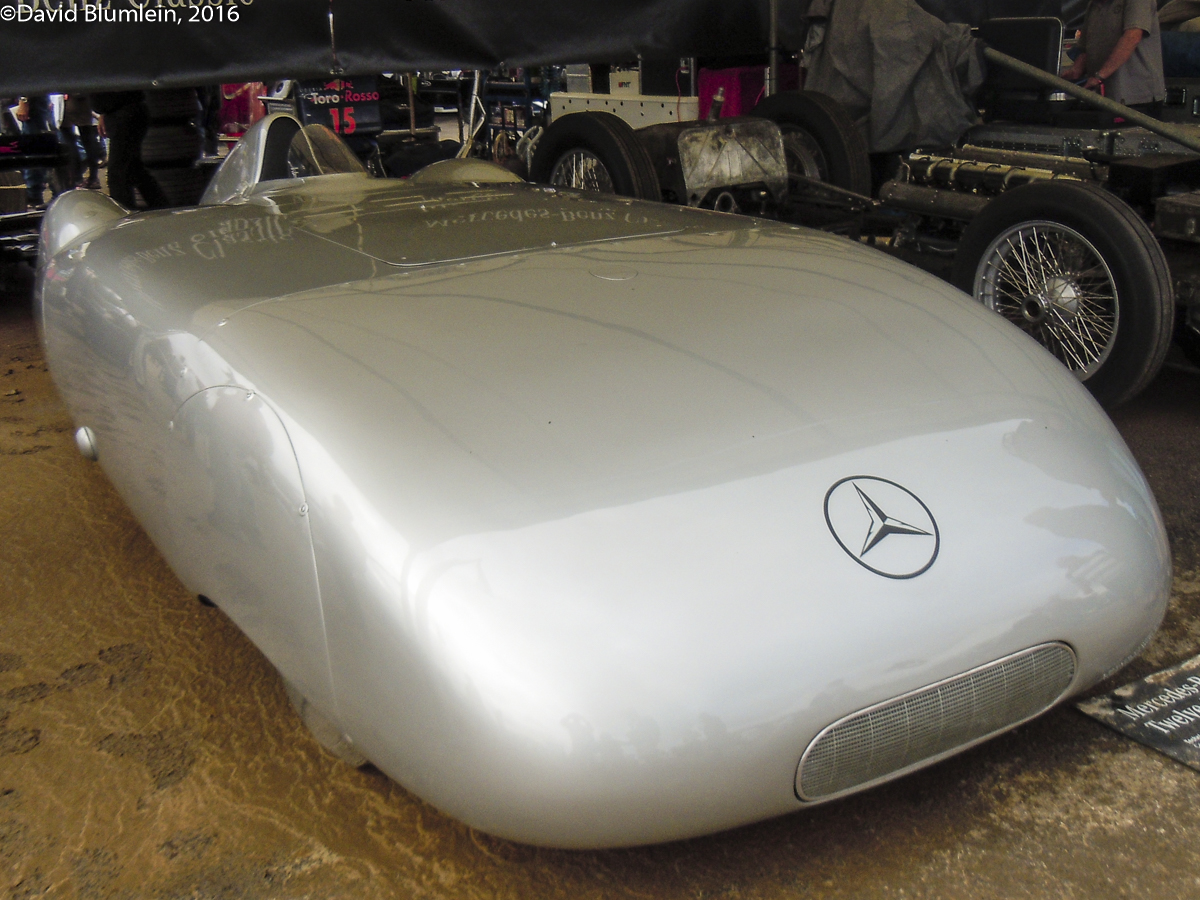 This Mercedes-Benz W25 R attained over 230 m.p.h. in 1936.
This Mercedes-Benz W25 R attained over 230 m.p.h. in 1936.
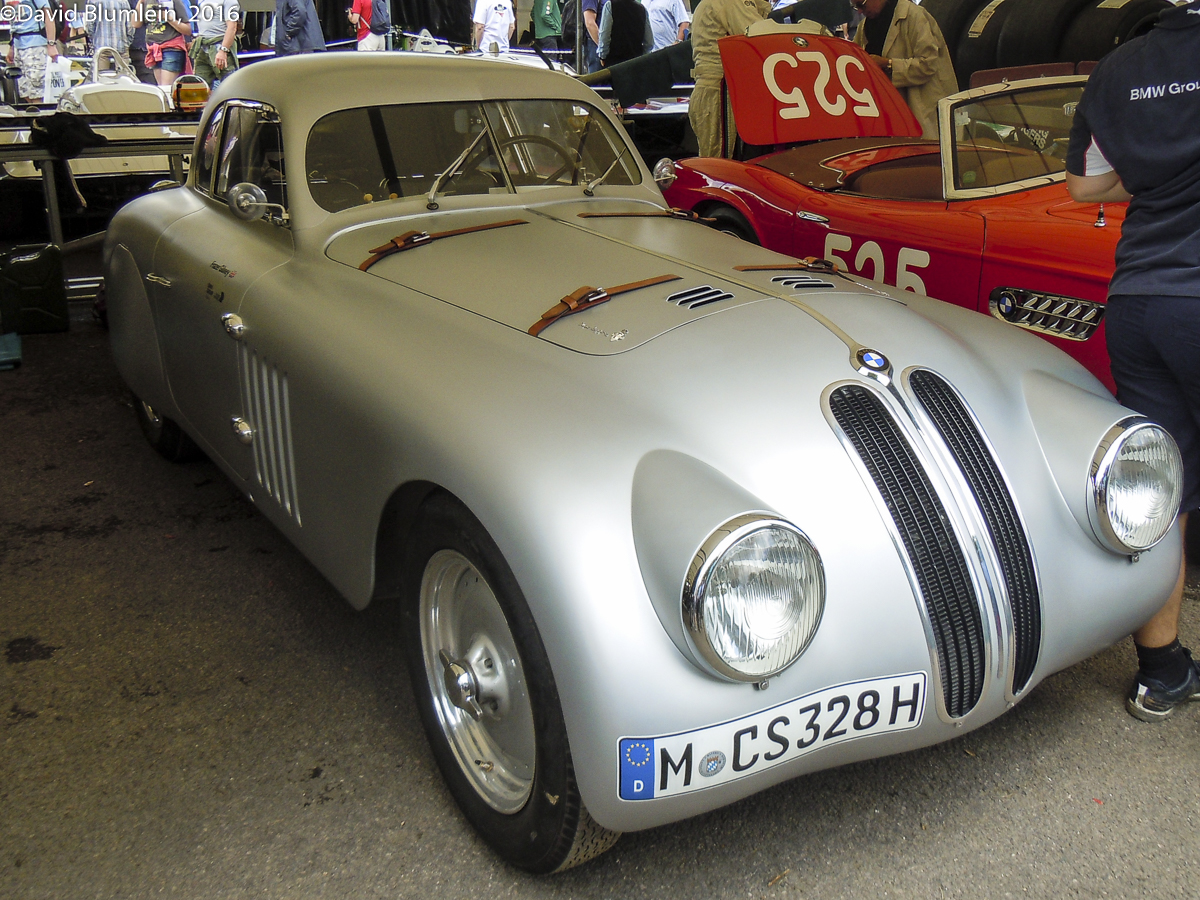
This is the 1940 Mille Miglia-winning BMW 2-litre, driven by Huschke von Hanstein and Walter Baumer.
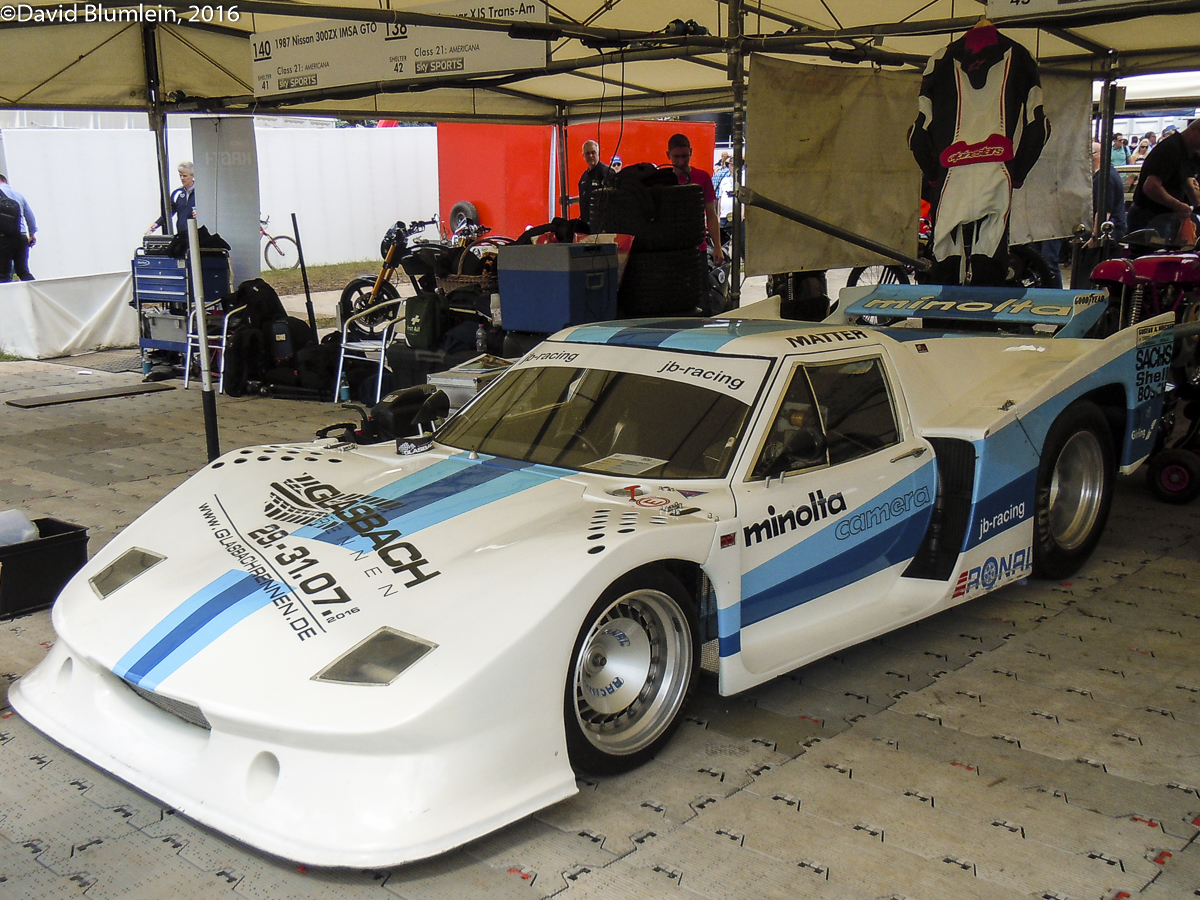
This unusual version of the Lotus Europa has a turbo BDA as used in the Zakspeed Capri. The car’s only noteworthy result was a sixth place at Hockenheim in 1979, driven by Harald Ertl.
It took Ford three years to win Le Mans, achieving it with the 7-litre GT40 Mk 2 in 1966.
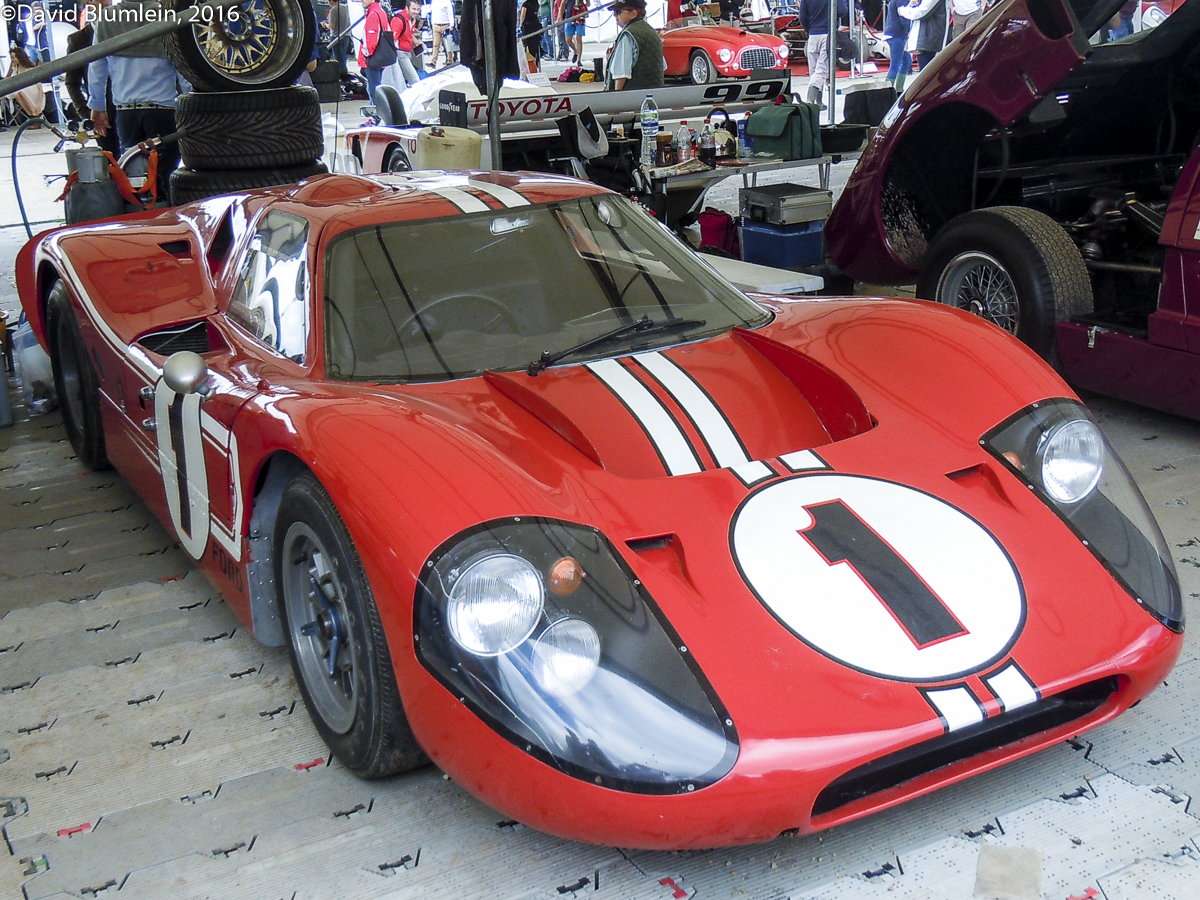
They repeated their success in 1967 when Dan Gurney and A.J.Foyt drove this Mark IV.
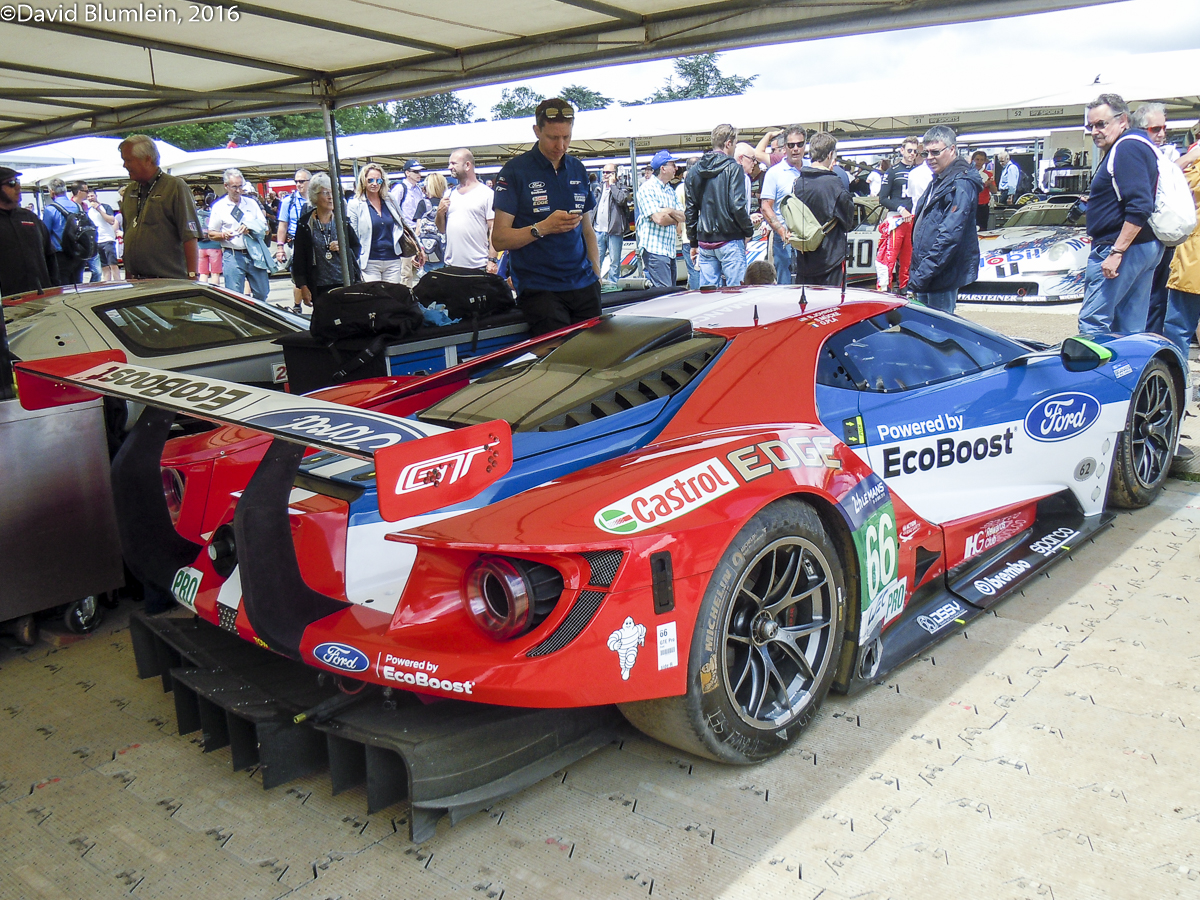
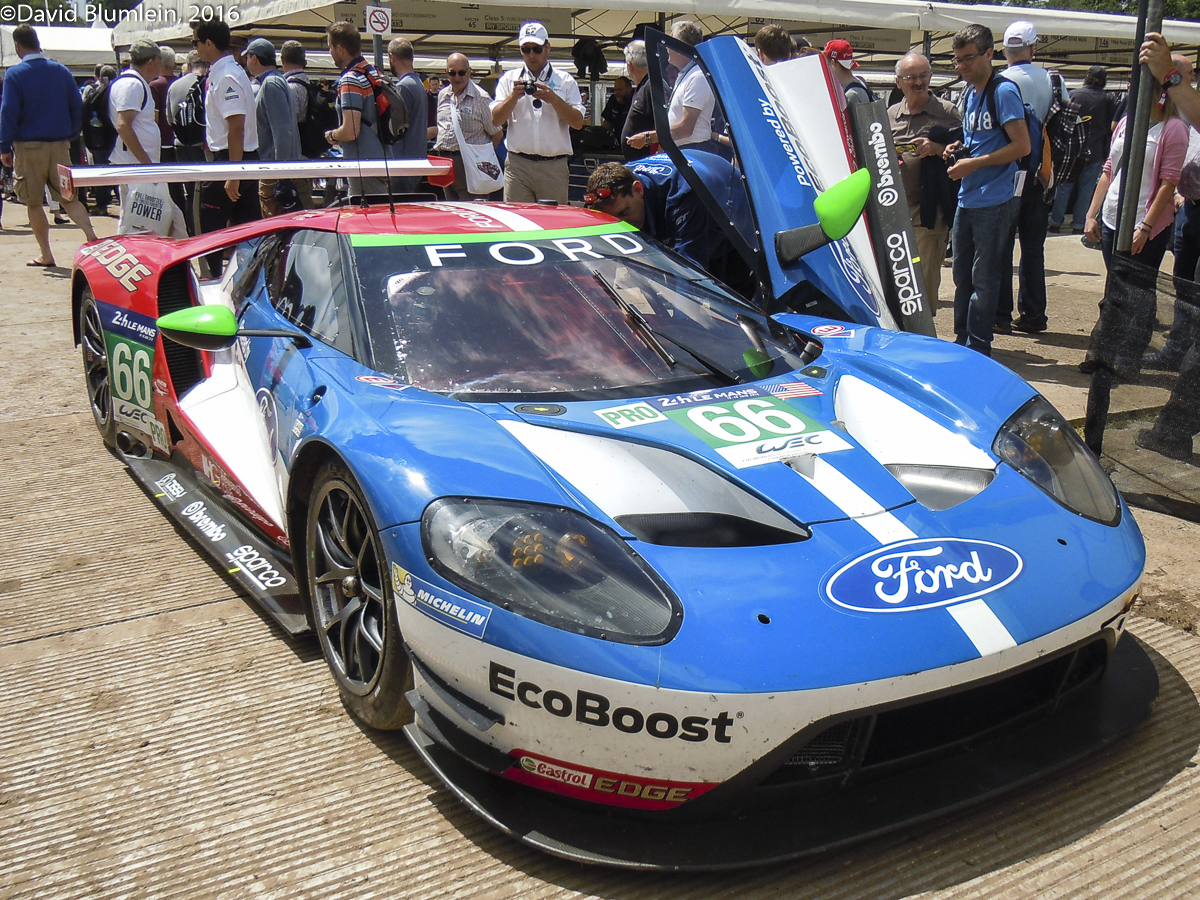
Ford returned to Le Mans this year with their new GT and successfully won the GTE Pro class.
Here is their trophy:
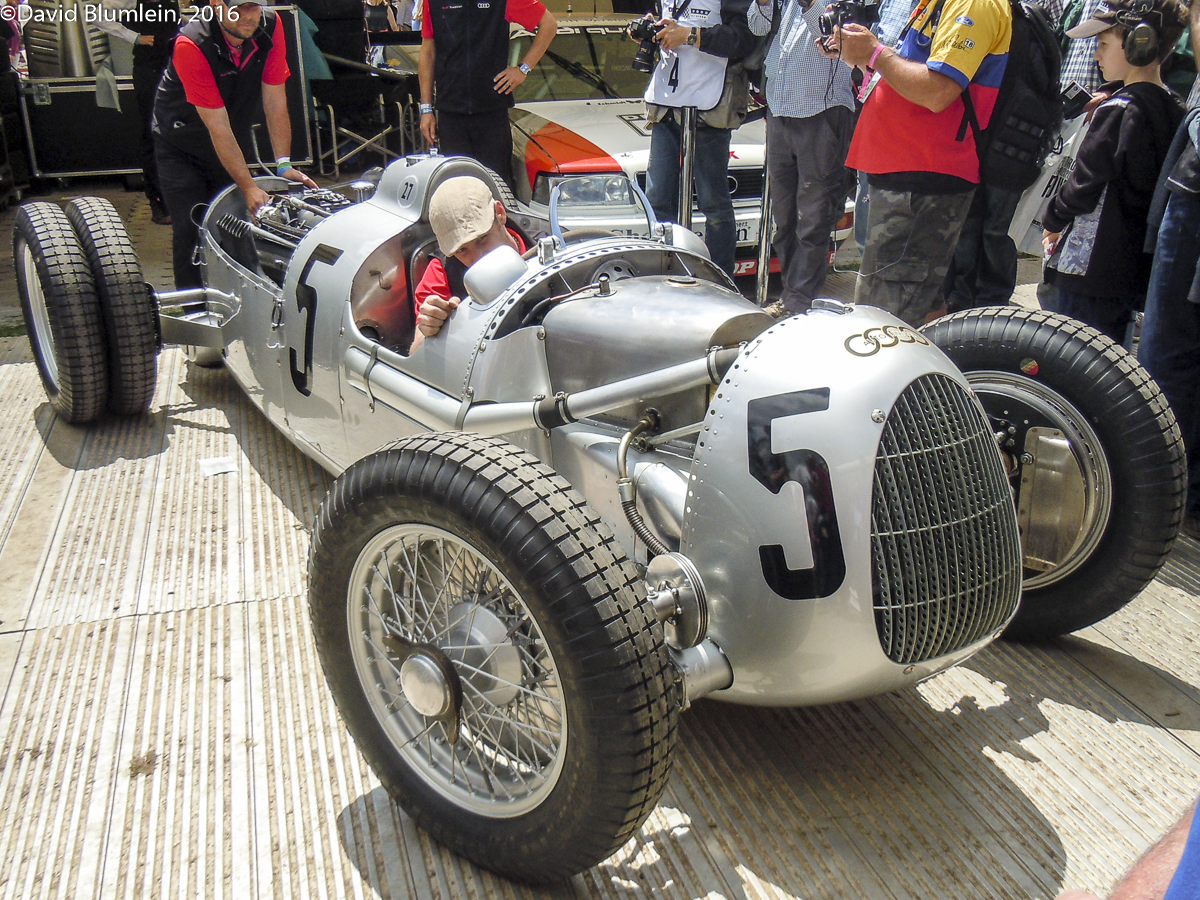
The 1936 Auto Union C-type warming up in the paddock.
Here is its 6-litre supercharged V16 engine.
TAILPIECE
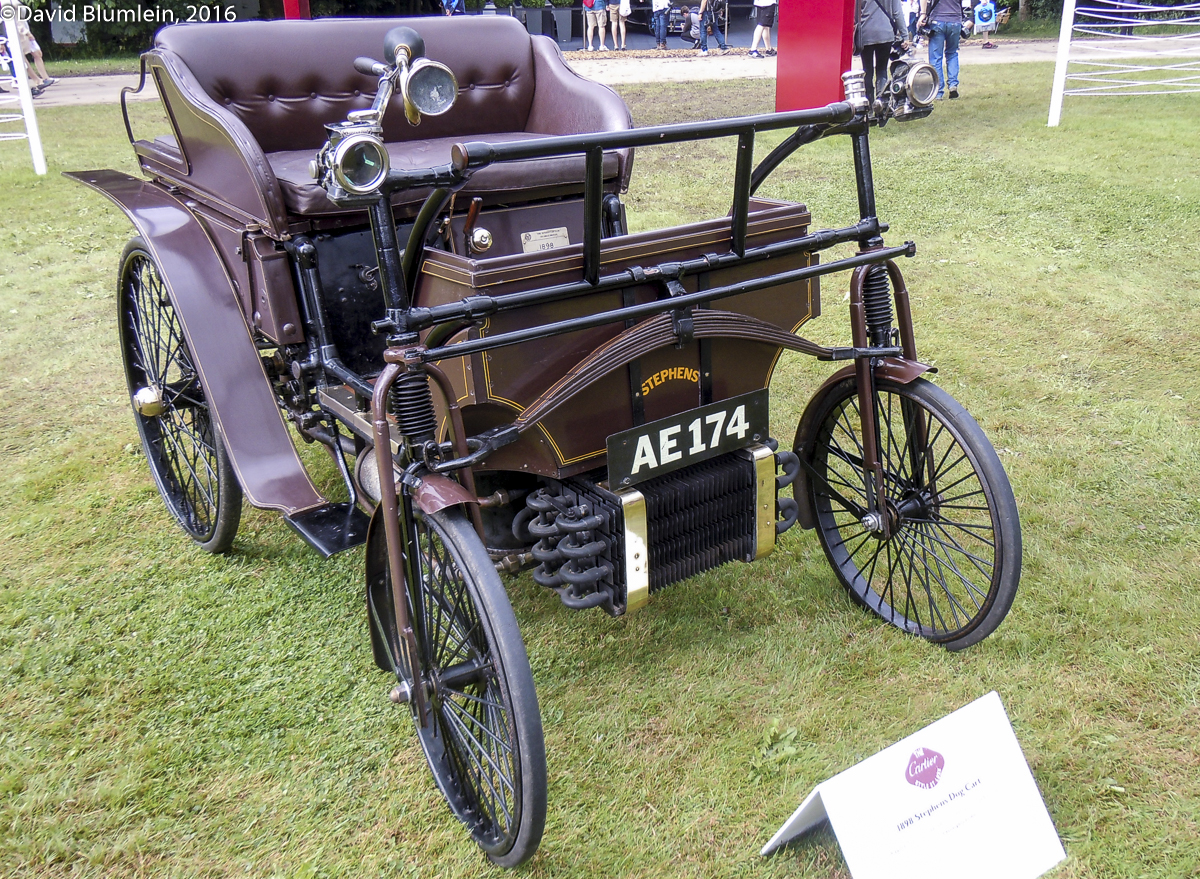
An 1898 Stephens Dog Cart – note the independent front suspension!
David Blumlein, July 2016